Travelguide Marrakech
Tips for your holiday in Morocco


Moroccan Currency: What you need to know about money when travelling
What is Moroccan currency called? What is the exchange rate? Can I withdraw money at a cash machine in Marrakech using my Maestro card or should I change money at a currency exchange bureau? Find the answers to key questions about money, currency, Morocco and travel at a glance.
In Morocco, currency is officially the Moroccan Dirham (MAD). A dirham is made up of 100 centimes and is currently worth about 0.09 Euros. Of course, currency is index-linked in Morocco. Therefore, it’s subject to fluctuations. However, these tend not to be too significant and the exchange rate won’t make a huge difference when you’re changing money.
What you should know about the currency in Morocco
The national currency is distributed in coins and banknotes but you’ll rarely use the 10 and 20 centime coins on your everyday travels. Coins that are worth half, one, two, five and ten Dirhams are far more important for you everyday spending. Banknotes are worth 20, 25, 50, 100 and 200 Dirhams.
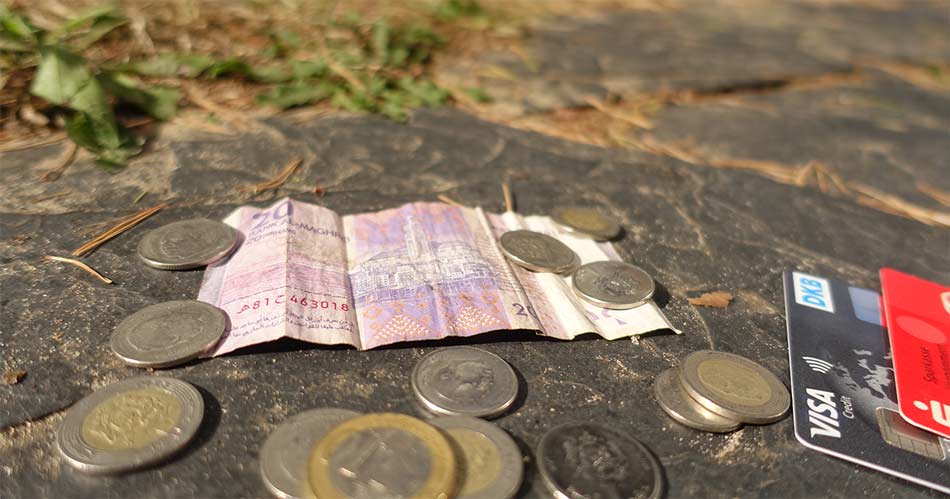
The official currency is the Moroccan Dirham (photo: Travelguide Marrakech)
How do you get cash in Morocco?
As with any long-distance trip, you should plan ahead for your holiday in Marrakech and leave yourself plenty of time to sort out how you will get money while you are there. You can’t choose one of the most obvious options as you aren’t allowed to bring Moroccan currency (the Dirham) into the country.
However, tourists shouldn’t be put off going to Morocco on holiday because of the restrictions on bringing in the national currency. Many other options are available to you when it comes to obtaining Moroccan Dirhams.
Changing money and planning to take it with you before you travel
Moroccan legislation rules that it’s illegal to bring Moroccan currency into the country. Although this law is mainly aimed at business travellers, it applies to tourists too. Most people would agree with me when I say that I’ve never wanted a customs officer to go rifling through my hand luggage and even less to inspect my wallet.
However, this import ban isn’t the only factor that goes against getting Dirhams at home before your travel. Above all, you may be faced with a poor exchange rate, as well as horrendous exchange fees. Unfortunately, you’re at the mercy of domestic banks in this respect.
When returning to Morocco, money matters may be a little easier if you still have leftover change or banknotes from your last holiday there and can take these with you.
My personal experience
Although it’s illegal to even bring in small amounts of money, in reality, I’ve never had a problem with this. However, due to poor exchange rates, I’d advise against changing a large amount of money in advance.
Exchange bureaus
You’ll find exchange bureaus at all Moroccan airports, as well as in every major city. Unlike banks, these have much longer opening hours and are normally staffed every weekday. They also cash travellers’ cheques for a fee.
In all honesty, I’m not a fan of these places. Above all, changing money in exchange bureau means you’ll get a poor exchange rate. In addition, changing money into Moroccan currency often incurs additional charges.
The second worst option for changing currency in Morocco
In Morocco, currency exchange bureaus are really best for those who only want to change smaller sums of money and who don’t have a credit card to use for free withdrawals. However, if you find you need some cash on the final day of your trip and don’t want to have to shell out on bank charges, using an exchange bureau can be a fairly easy way to get your hands on some cash.
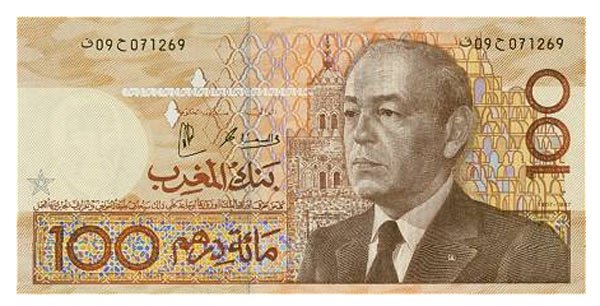
When you’re in Morocco, if you need to change this 100DH note, for example, it’s better to do so at a machine rather than go to an exchange bureau.
When looking for the ideal exchange bureau, compare their exchange rates with those of the banks. It’s also a good idea to ask about any additional exchange fees. Anyone changing money in a currency bureau should always keep their receipt. Just as you can’t bring Moroccan money into the country, you can’t take it out either. When following these procedures and changing your left-over foreign currency at the airport, you must have your exchange receipts.
Incidentally, I’ve never been approached on the street and asked if I want to buy Moroccan Dirham . However, it’s common for shops in the major tourist cities to price their goods in Euros and use a conversion rate of 1:10. This puts buyers at a disadvantage because it’s a far worse exchange rate and automatically inflates the prices paid.
In my experience
Currency exchange bureaus are the second worst option for changing currency in Morocco. Unless you’re looking to change a small leftover amount at the end of your holiday, I’d always withdraw money using a credit card.
Maestro cards
Just about every Moroccan city has at least one bank. You’re usually limited to a maximum withdrawal of 2000 Dh. It used to be easy to withdraw money from bank ATMs using your Maestro card.
Unfortunately, things changed a few years ago. So, these days, many cards won’t be accepted at ATMs, including V-PAY cards. On the other hand, Maestro cards are sometimes accepted at larger shopping centres. Another problem is the relatively high withdrawal charges. These vary according to your bank and are calculated as a percentage, often with a fixed basic amount applied. For example, you could find that withdrawing 20 Euros incurs a fee of up to 5 Euros.
If you only have a Maestro card and want to withdraw money in Morocco, try to only make a limited number of withdrawals and maximise the amount of money you take out each time.
I used to simply use my Maestro card. Once, when traveling in a group, we took it in turns to withdraw large amounts of cash and divided these sums between us. Today I take a free credit card with me when I travel and can withdraw cash without incurring any charges. Consequently, I tend to go to the ATM fairly frequently and withdraw smaller amounts.
Credit cards
Credit cards (Visa and MasterCard) are the most reliable method of withdrawing money in Morocco. You can use them at any ATM in the country. Also, credit cards offer a few more options like cashless payments in large shops, restaurants and hotels, and, above all online payments for bookings. Often, credit cards are the only accepted payment method for many low-cost flights and hotels. Even renting a car can sometimes be difficult without a credit card.
If you’re using a free credit card, you’ll either find that there aren’t any fees when withdrawing money in Morocco. Or, if you do get charged, it’s easy to get a refund at a later date. However, this only applies when you withdraw cash. In total contrast, anyone using their credit card abroad to pay for items in shops, restaurants or hotels and riads can expect to incur even higher additional charges than those levied for Maestro cards.
If your credit card (or Maestro card) is lost or stolen, put a block on it straight away. Always keep your credit card company’s phone number to hand so you can report a lost or stolen card.
If you use a free credit card, in Morocco, money can be saved on expensive withdrawal fees and can you can definitely use any ATM machine to withdraw Moroccan currency. I feel better when I don’t carry too much cash around with me. Due to the horrendous fees for cashless payments, I only use my credit card for online bookings and to withdraw cash. Just in case my card is lost or stolen, I always keep my card company’s phone number in my mobile phone contacts list.
Practical tips: (Not) withdrawing cash when landing at the airport
After your flight lands in Marrakech, you’ll go through passport control and find yourself in the baggage reclaim area of the Arrivals hall waiting for your hold luggage. You’ll find a currency exchange bureau and an ATM there. These will be easy to spot from the long queues of passengers who’ve recently disembarked.
If you’re lucky, you’ll still have 50 Dirhams left over from your last holiday in Morocco. This means you can happily bypass the queues and hop on the airport bus . If you don’t have any Moroccan cash and prefer not to stand in a long queue of tourists at the start of your Marrakech holiday, I recommend a getting a private airport transfer to the city centre . This won’t cost you much more than a shuttle bus or taxi. And it’s much quicker. Making it easy to avoid considerable stress and hassle after you’ve arrived.
Since these transfers are booked and paid for in advance, you won’t need cash to get to the city centre. When you get off the bus and make your way towards Jemaa el Fna , it’s easy to spot the banks with accessible ATMs.
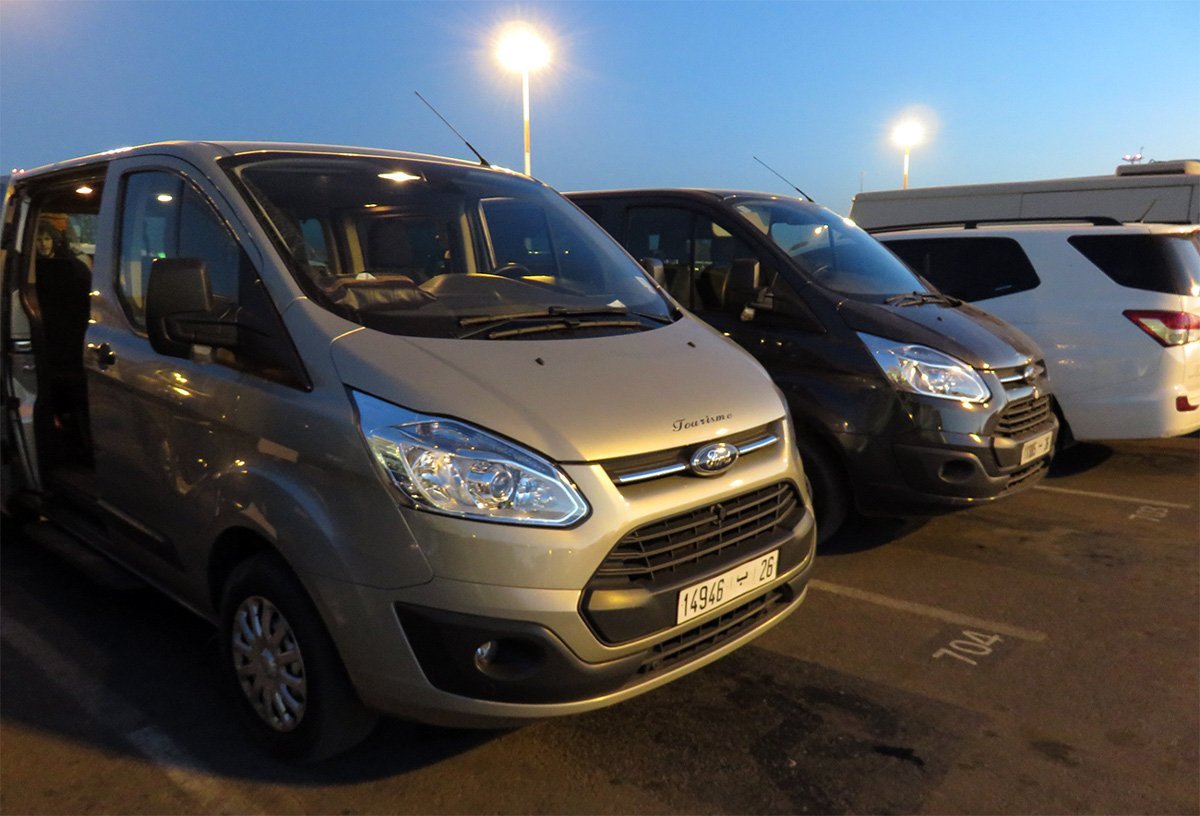
You don’t need cash to book an airport transfer. Ride on a modern minibus equipped with WLAN and save time and stress (photo: Travelguide Marrakech)
As mentioned above, changing money in a Moroccan exchange bureau isn’t the best option. Of course, this applies to airports too. After disembarking from my flight, I like to get to the city centre as quickly as possible without queuing. That’s why I prefer to be picked up at the airport and sort everything else out later.
Change, cash, Morocco and a travel cash app for when you’re on the move
Notes and coins in Moroccan currency are scarce, especially the smaller amounts. Therefore, always try to keep as much change on you as possible. There seems to have been a chronic shortage of small change for years,. Which means it’s always a good idea to have enough small notes and coins in your wallet.
I’m extremely disciplined when it comes to having cash on me in Morocco and my golden rule is to ensure I always have enough small change (5 DH, 10 DH, 20 DH). If you only have a 200 DH note, you won’t find it easy to pay for anything in Morocco.
If you decide to leave the city, for example, by going on a trekking tour in the High Atlas Mountains , build up your cash reserves in advance and make sure you have enough money. Don’t forget small change. Firstly, tiny settlements and villages don’t have ATMs. Secondly, it can be a little embarrassing. Let’s say if you want to give someone a tip on your travels and only have a 200 DH note.
App recommendation
If you’re travelling in a group and need to work out how to divide up everyday expenses, try the free TravelMate App .
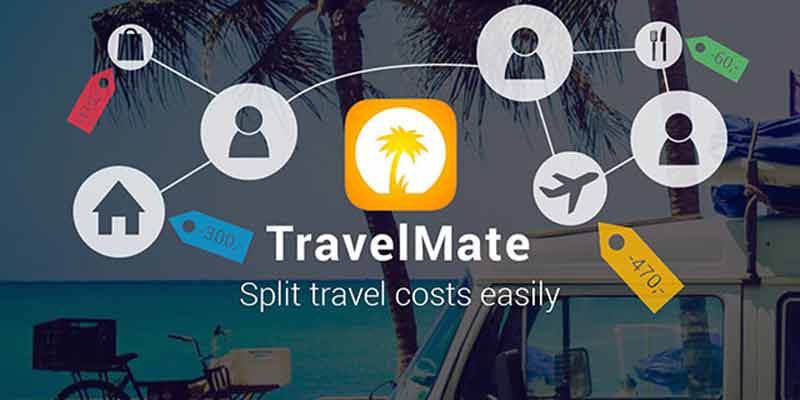
The official Moroccan currency is the Moroccan Dirham, which is equivalent to 0.09 euros at the moment. Since you can’t bring Moroccan currency into the country, changing money at home isn’t a good idea. Instead, withdraw your money from an ATM when you’re there. Use a free credit card for this and benefit from withdrawals without being charged. Since Moroccan notes and coins are fairly scarce and especially in smaller amounts. Always try to keep as much change on you as possible. I can guarantee it will come in handy.
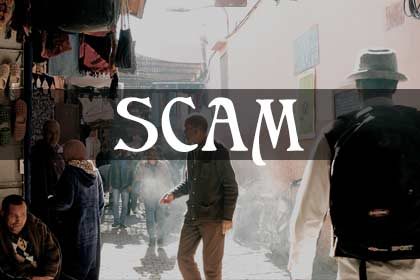
Scams in Morocco and Marrakech: The most common frauds and rip-offs
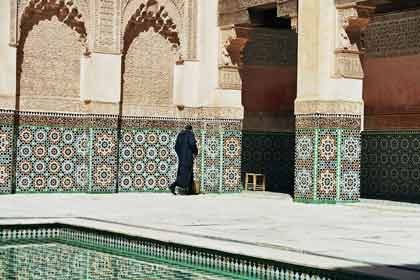
Marrakech holidays: Some useful hints and tips
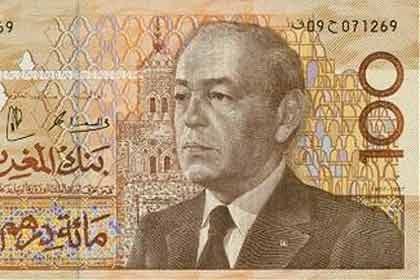
Withdrawing money and managing travel finances in Marrakech
Stating the easy to find facts. But the important one soon becomes how much cash can I go back home with. But you don’t say that
“Just as you can’t bring Moroccan money into the country, you can’t take it out either. “
Thank you this was really helpful. MK
Thank you. Extremely helpful
Hi , you state that you can change the large denomination notes into smaller ones at an ATM ??? how is this done please ???
Leave a Reply Cancel reply
Your email address will not be published. Required fields are marked *

- Imperial Cities Express - 5 days
- Fez and the Desert - 5 days
- Marrakech and Fez by Train - 5 days
- Imperial Cities - 7 days
- Marrakech and the Coast - 7 days
- Fez and the Desert Culture - 8 days
Northern Morocco - 8 days
Complete desert culture - 8 days.
- Northern and Central Morocco - 8 days
- Imperial Cities and the Desert - 10 days
Marrakech, the Coast and the Desert - 10 days
- Total Morocco - 13 days
- From Marrakech
- To the Desert
- Walking Tour of Marrakech
- Horse Carriage Ride around Marrakech
- Hot Air Balloon Ride over Marrakech
- Camel Ride in Marrakech
- Quad Tour around Marrakech
- Chez Ali Dinner and Horsemen Show
- Ouarzazate Day Trip
- Ourika Valley Day Trip
- Ouzoud Falls Day Trip
- Essaouira Day Trip
- Agafay Adventure - 1 day
- Zagora Adventure - 2 days
- Merzouga Adventure - 3 days
- Merzouga Adventure - 4 days
- Tailor-Made Tours
- Blog Home Page
- Before Your Trip
- Chefchaouen
- Contact Information
- Forms of Payment

Morocco Money Exchange: How, How Much, When and Where
Last Updated: 2021-04-28
In all my experience there is a doubt that always, always arises for all travelers to Morocco: how to exchange for dirhams and, above all, how much to exchange …
So, if you’re newbies to these issues and want to start your trip well-informed, I advise you to read all the information about the currency of Morocco that I provide below: I promise to make the explanation as pleasant as possible. Let’s get started!
The Currency of Morocco and the Exchange Rate
The official currency of Morocco is the Dirham , which abbreviated (as it’s usually shown on receipts, in online stores, etc.) is “ MAD ”, although in some places you will see it as “DH”.
How can we calculate the exchange rate of our currency to dirhams and vice versa? Probably the quickest way is to go to an updated online converter below. You’ll see your currency based on your connection country.
However, I don’t feel like it’s practical to use a converter like this in the day-to-day activities of a trip, because the currency barely fluctuates and it is not convenient to use the converter every time you think about buying something. It’s better to figure out a mental shorthand for calculating the exchange rate.
For example: a dollar is a little less than 10 times a dirham, a euro is a little more than 10 times a dirham, and a pound is approximately 10 times a dirham plus 25%.
In other words, you’ll get slightly less than 300 dirhams for 30 dollars, slightly more than 300 dirhams for 30 euros or 300 dirhams plus a quarter of that amount (approximately 375 dirhams in total) for 30 pounds. On the flipside, if you pay 80 dirhams for that souvenir that’s getting you so excited, you will have to pay slightly more than 8 dollars, slightly less than 8 euros or around a quarter less than 8 pounds (approximately 6 pounds).
Obviously depending on your local currency, mental conversion may be more or less complicated, but once you get used to it you’ll have a feel for what you’re spending during the trip.

Changing Money in Morocco
To obtain dirhams the most immediate solution is to do it in advance in a bank in your country, although I see two main drawbacks: (1) It will be difficult to know precisely how much cash you will need during the trip but, mainly, that it is more than likely that (2) The bank will propose a worse exchange rate than what you’ll get in Morocco.
The best option without a doubt is to exchange your money once you arrive in Morocco : there are many exchange houses spread across Morocco and you can exchange money at will throughout your trip. Fortunately, they usually offer a similar exchange rate, so no need to obsessively check several money changers.
To make it easier for you in the beginning (because I’m aware that on arrival there is a certain nervousness about not having local currency), I’ll provide you with the addresses of different exchange houses at the main points of arrival in Morocco (Casablanca, Fez , Marrakech and Tangier ) both at the arrival areas and in the medina or nearby.
Mohammed V International Airport (just before leaving the airport). Near the Hassan II Mosque and the medina: Change Goulmima Exchange ( 550 Rue de Goulmima )
Säis International Airport (just before leaving the airport) Bab Bou Jeloud : just before entering the medina, you’ll see the blue door in front of you, about 50 meters (160 feet) on your right there is an exchange house.
Marrakech-Menara Airport (just before leaving the airport) Hotel Ali ( Rue Moulay Ismail , near Djema el Fna square). Although it is a hotel, they have a 24-hour operational exchange house. Hotel Omar ( Rue Bab Agnaou ). Similar to the previous case, but also just 2 minutes walk from the square.
Ibn Batouta International Airport (just before leaving the airport ) Port of Tangier-Ville (on the way out) or port of Tangier Med (inside) April 9th 1947 Square (also known as Grand Socco). In the central square itself at the entrance of the medina there’s an exchange house opposite the Cinema Rif.
Are there Other Ways to Pay?
Worst case scenario: you are lost in the medina, you have been looking for an exchange house for more than an hour and all you want is to exchange the money in your pocket to have a quiet lunch on a terrace, what other possibilities do you have?
Can you pay in your own currency? Only if your currency is the euro, in which case they will probably only allow you to pay with banknotes , that is, a minimum purchase of 5 euros , since if they want to change the euros back to dirhams they will not be allowed to change coins at their bank. On the other hand they will offer you an exchange rate of 10 dirhams per euro , which is hardly a loss compared to an exchange house.
Occasionally, they might accept another currency, such as the dollar or the pound, but this is not the norm, since the foreign currency they are most used to is the euro because Europeans (mainly Spaniards) are the most frequent visitors to this country.
Can you pay buy card? I do not recommend it: not everyone accepts credit and debit cards, and depending on the bank they may even charge somewhat abusive commissions. Another option is to use a debit card to withdraw from an ATM directly in local currency, in which case the commission will depend on the bank of the ATM and your own bank.

Morocco Travel Cost: How Much to Exchange
To make a good decision about when and how much to exchange we must analyze our expenses: travel, meals, tickets… Although obviously everything will depend on the trip (we will not spend the same on our accommodation if meals are included, for example). I can tell you that the average per person and day is usually around 150 to 200 dirhams .
And what happens with those various expenses that almost certainly occur throughout the trip? An unplanned visit, some medicine we need, a present for our relatives or, what the hell, for ourselves… How do we plan for it?
The answer is that we can’t completely plan for the unexpected. Therefore, my advice is to exchange money first for basic expenses (150-200 dirhams per day or maybe a little more maybe if you are a compulsive buyer) and then, during your trip, make use of the exchange sites within the city. And if you have euros, use them if you have to if the purchase is 5 euros or more.

In addition, in the unlikely event that you spend less than you expect, you can always exchange what’s left over back to your home currency at the airport or seaport on the way back (remember that exchanging from dirhams to other currencies is much less favorable and that it will probably require you to show the receipt you were given when you changed your currency to dirhams). On the other hand, doing so at your bank once you get home can be complicated. And remember that there is always one last option: use the money you have left over for your next trip to Morocco!
And here is one more blog post. Thank you for reading this article and if you have any questions don’t hesitate to comment. Much love to all!
This article is part of our beginner’s guide. If you want to know more, check out our page on Morocco tourism .
And if you like it, share it!
About the Author
Leave a comment (it will be published as soon as we have approved it): cancel reply, travel to morocco with us.

- Travel Tips
- Getting Around Morocco
- Haggling in Morocco
- The Islamic Calendar
- Morocco Map
- Money Exchange
- What is a Riad
- Weather in Morocco
- Argan Oil: Benefits, Uses, and Origin
- Moroccan Arabic
- Calendar of Festivals and Events
- Ramadan in Morocco
- Aït Ben Haddou
- Hassan II Mosque
- Travel Guide
- Where to eat
- Kasbah of Chefchaouen
- Medina of Fes El Bali
- Medina of Fes el-Jdid
- Bou Inania Madrasa
- Chouara Tannery
- What else to see
- Jemaa el-Fnaa
- Koutoubia Mosque
- Majorelle Garden
- Menara Gardens
- Chellah Necropolis
- Kasbah of the Udayas
- Tuaregs, the Nomads of the Desert
- Sleeping in the Sahara Desert
- Road of the 1000 kasbahs
- Merzouga / Erg Chebbi
- Erg Chigaga
- Moroccan Cuisine
- Moroccan Mint Tea
- Avocado banana smoothie
- Kefta / Kefta kebabs
- Seafood Briouats
- Moroccan Tomato Soup
- Moroccan Chickpea Salad
- Chicken Couscous with Vegetables
- Kefta Tagine
- Beef, Apple and Raisin Tajin
- Ktefa (Milk Bastilla)
- Arlette Olaerts
- Juana (The Kitchen of Babel)
- Sara (Mon déjà vu)
COMMON SEARCHES Morocco Holidays Morocco Tours Marrakech Tours Morocco Travel
LEGAL INFORMATION Legal Notice Terms and Conditions Privacy Policy Cancellation Policy and Insurance
USEFUL INFORMATION How to Make a Reservation Forms of Payment Passports and Visas FAQ
ABOUT OUR COMPANY About Us Contact Reviews
Privacy Overview
- Attractions
- From Casablanca
- From Marrakech
- From Tangier
- Sightseeing
Breaking through the labyrinth of Moroccan markets or sipping on a refreshing mint tea in a shaded Moroccan café, one thing becomes crystal clear – having the right currency in your pocket goes a long way. Fret not, fellow traveler! You’re on the edge of uncovering the secrets to navigating the currency landscape of beautiful Morocco.
What is the currency in Morocco?
The vibrant and captivating kingdom of Morocco operates on a currency known as the Moroccan Dirham, often abbreviated to MAD. This monetary unit is the beating heart of Morocco’s bustling markets and dynamic economy. Each Moroccan Dirham is further divided into 100 smaller units called santimat. So, when you venture into Morocco’s multi-colored souks armed with Dirhams, you’ll experience the truly authentic rhythm of Moroccan life. Interesting, isn’t it? Morocco invites you within its borders, where every Dirham and santim spent adds a beat to the rich symphony of its energetic markets.
What Currencies are accepted in Morocco?
Morocco is generally welcoming to major international currencies. US Dollars, Euros, and British Pounds accepted in many establishments, such as hotels , restaurants, and larger shops. However,’s important to note that many currencies in Morocco may not be widely accepted. To avoid any inconvenience, it’s best to carry either Moroccan Dirham or one of the aforementioned international currencies.
Maneuvering Moroccan Currency.
The Moroccan Dirham (MAD) holds reign in this eclectic country, slipping with ease into everyday transactions. Note: USD, EUR, GBP while used by some tourist-heavy businesses, may not be accepted everywhere. So, keep your dollars for a rainy day back home and aim to transact in the local currency.
Choosing Where to Exchange Money.
Hold your horses at exchanging currency at airport terminals. While convenient, you might catch a whiff of higher fees. Better options lie in authorized money exchange offices scattered across popular Moroccan cities .
Must Read: Private Morocco Tours | Unveiling the Mystique of Morocco
Best Currency For Tourists in Morocco.
It’s a no-brainer, MAD takes the crown for being the most hassle-free option. However, in a pinch, Euros are also widely accepted across tourist hotspots.
But’s financial heart beats not only to the drum ofhams. The mighty US Dollar, the formidable Euro, and the stalwart British Pound are all welcomed guests in this marketplace. However, remember that the Canadian and Australian dollars may not be greeted with the same enthusiasm.
When Credit Cards Come Into Play.
Luckily for you, credit cards are gaining charm within city hotels and businesses. Although, in smaller towns and establishments, you might want to rely on the trusted dirham, given the sparse credit card acceptance.
Minimizing Currency Exchange Fees in Morocco.
A traveler’s true virtue – knowing where to exchange money. Bank ATMs lend the best exchange rates, saving you from a dent in your travel budget. Be sure to inform your bank about your travel plans to avoid surprise charges.
Currency at Moroccan Airports: A Balancing Act
While the Moroccan airport can serve as a quick fix for your currency needs, prepare for a higher exchange rate than city centers or local banks.
Don’t forget, every awesome travel story ignites from packing the right currency. From the echo of bustling medinas to the calm of Sahara nights, the Moroccan adventure awaits you.
Remember, in the world of travel, knowing the ropes of Currency in Morocco can make your journey smoother and richer.
The Moroccan Dirham MAD is the official currency used in Morocco.
While some places might accept US dollars, it’s safe to assume that MAD is your best bet for hassle-free transactions.
Bank ATMs and Bureau de Change offices are your best friends when looking to exchange currencies in Morocco at fair rates.
While the Moroccan Dirham is preferred, Euros, USD can work as a backup in some cases.
Yes, in bigger cities and hotels, but always carry some Dirham for smaller vendors, local markets, and establishments in less urban areas.
- Currency in Morocco
Related Articles
10 best places to visit in morocco in 2024, 10 best riads in marrakesh, morocco | special place to stay in marrakech, 10 best things to do in merzouga, morocco | full travel guide, subscribe to our newsletter.
Subscribe to receive all the latest news, tips, and travel updates about Morocco, delivered right to your inbox!
LEAVE A REPLY Cancel reply
Save my name, email, and website in this browser for the next time I comment.
MOROCCO TRAVEL WAY
Hi, welcome to The Morocco Travel Way, a Morocco travel guide and blog! For lovers of travel, food and adventure in Morocco. Looking for travel inspiration, culinary encounters, culture and adventure in Morocco? You’ll find all this on The Morocco Travel Way with travel guides and tips to help you make the most of every trip.
Latest Articles
High atlas mountains in morocco, africa | where the mountains are law., best things to do in ouarzazate, morocco | must-see attractions revealed, popular category.
- Information 29
- Destination 28
- Morocco news 18
- From Marrakech 15
- Sightseeing 14
Popular Articles
Best 15 things to do in fez morocco for 2024 |..., marrakech, morocco | important things to know before you go in..., the blue city of morocco “chefchaouen” | top guide for visiting..., what to buy in morocco & how to bargain | shopping....

POPULAR POSTS
The 10 best beach towns in morocco | guide with photo....
- From Fez 14
- Hotels and Riads 11
- Terms & Conditions
THINK MOROCCO
Moroccan Currency, Exchange Rate & More
Planning a trip to Morocco? Make sure you’re prepared when it comes to money matters with this handy guide. We’ll cover everything you need to know as a visitor, from exchanging currency to costs of living and tips for saving money.
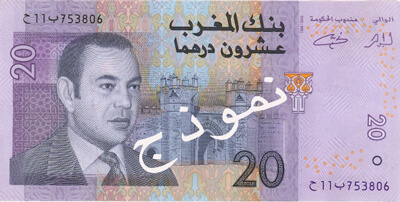
The Moroccan Dirham
The official currency of Morocco is the Moroccan Dirham (MAD). The dirham is controlled by the Central Bank of Morocco and has an exchange rate that fluctuates relative to other major currencies.
Current exchange rate: 1 USD = 9.61 MAD (as of August 2023)
The dirham has been the official currency since 1960 when it replaced the French franc. Morocco has relatively low inflation, around 2-3% annually in recent years.
Moroccan Dirham Denominations and Conversions
The Moroccan dirham (MAD) comes in the following paper banknote denominations:
Additionally, Moroccan dirham coins come in the following denominations:
Although not an exact conversion, a good rule of thumb is that 10 Moroccan dirhams equals about 1 euro.
Some outdated currencies like francs and reales may still be used colloquially in markets and stores. Common conversions are:
- 1 MAD = 10 francs
- 1 MAD = 2 reales
When exchanging money, use reputable exchange bureaus and banks to get the best official exchange rates. And don’t get confused if you hear dirham amounts referred to in francs or reales!
Can we pay in euros?
While the Moroccan dirham is the official currency, many shops and vendors will accept euros for payment, especially for larger purchases.
If you need to pay a bill but only have euros on hand, don’t fret – just kindly ask the shopkeeper or merchant if they can accept euros. For smaller purchases under 50 MAD or so, they will likely ask you to pay the exact amount in dirhams.
However, for larger ticket items like hotel bills, organized tours, fancy restaurant meals, or shopping sprees, you may be able to pay in euros if you are in a bind. The merchant will likely apply their own exchange rate, which may be a bit higher than the official rate.
So while it’s ideal to pay in local currency, having some euros as backup can be helpful in a pinch. Just make sure to ask politely first, and don’t assume or demand that your euros will be accepted everywhere. With some flexibility and understanding on both sides, paying in euros can tide you over until you can exchange more dirhams.
Exchanging Currency in Morocco
Changing money in Morocco is easy with plentiful exchange options:
- Airports & ports: Exchange desks and kiosks are located in arrival areas, but rates may not be the best.
- Land borders: Money changers at land crossings like Ceuta and Melilla can exchange currency.
- Banks & exchange bureaus: Found everywhere, especially in cities. Offer best rates.
- In a pinch: Ask shops/vendors to exchange small amounts if bureaus are closed.
When you first arrive, just change enough for essentials like taxis or meals for the day.
Pro tip: Skip the airport exchanges and wait to change the bulk of your money at a major bank or reputable bureau in your destination city to get the best exchange rates.
Rates at hotels and ports catering to tourists are usually poor. And triple check the amount of dirhams you receive during any exchange.
Need to exchange currency quickly? In a rush, many shops and merchants can exchange small amounts of euros or dollars as a courtesy, if the official exchanges are closed or far away.
Tipping Etiquette and Bargaining Tips in Morocco
Tipping is customary in Morocco to show appreciation for good service. At restaurants, leave around 10% of the bill. With taxis and other services, tip what you feel is fair based on time and effort.
Bargaining is expected at bazaars, souks, and markets when purchasing souvenirs, handicrafts, antiques, and other tourist items. Vendors may inflate the initial asking prices.
Some tips to bargain well
Morocco is known for its bustling bazaars and markets where bargaining is part of the experience. Use these pro tips to master the art of haggling:
- Research typical prices of souvenirs, leather goods, argan oil, and antiques so you know the true value.
- Start your offer at 50% of the initial asking price and negotiate from there.
- Aim to settle around 30% below the starting price.
- Buy multiple items from the same vendor to get better bulk discounts.
- Remember the 20% sales tax when negotiating the final dirham price.
- Know that grocery and restaurant prices are usually firm – no need to haggle there.
- Don’t get obsessed over bargaining – enjoy it as a cultural experience!
With proper research and tactics, you’ll get the best deals on your Moroccan souvenir shopping and happily boost the local economy! The back-and-forth negotiation is all part of the fun.
Paying with Cards and Cash in Morocco
Paying with credit or debit cards is not as widely accepted in Morocco compared to some countries. Cards can be used at higher-end hotels, nicer restaurants, and major stores or franchises. But many local shops, cafes, transportation, markets, and small hotels operate on a cash-only basis.
If you do use your card in Morocco, be aware that your home bank likely charges foreign transaction fees ranging from 3-5%. And local Moroccan banks may charge an extra 1-2% fee for using a foreign card in their ATMs. These fees really add up.
To avoid excessive fees, consider getting a travel credit card with no foreign transaction charges. Or use a card like Revolut that reimburses ATM fees. This will save you money compared to using your regular bank card.
Here is a quick guide on where you can and can’t pay by card in Morocco:
Where Cards Are Accepted:
- Major hotels, particularly larger chains
- Higher-end restaurants
- Franchise and major retail stores
- Modern grocery stores/supermarkets
Cash Only Places:
- Small local hotels, riads, etc
- Street food and small family restaurants
- Markets and merchant stalls
- Most local shops and cafes
- Taxis, buses, trains
- Small grocers and convenience stores
For daily expenses like meals, taxis, accommodation and shopping, always have some cash (Moroccan dirhams) on hand. But a fee-free card can be good backup for major expenses. With this knowledge, you can better plan your payments!
Withdrawing Cash from ATMs in Morocco
Since many places in Morocco are cash-only, having access to cash is important. You can withdraw Moroccan dirhams from ATMs around the country using debit and credit cards from places like Spain.
ATM limits are typically around 2000-4000 dirhams per transaction, or about €200-400. If you need more, simply conduct multiple transactions. Just be aware of fees:
- Foreign bank fees – Your bank from home may charge ~5% on foreign ATM withdrawals.
- Local bank fees – Moroccan banks can charge ~2% for using their ATM.
- Currency conversion fees – Around 4% extra is added when converting currency.
So on a 1000 dirham (€100) ATM withdrawal, expect to lose ~€11 in various fees. This really adds up!
Watch out for “tourist card” ATMs with outrageous fees. And avoid ATMs at hotels, which also tend to overcharge.
To save money, use a travel card like Revolut or a credit card like N26 that rebates ATM fees. You can withdraw cash without any of those hidden ~11% charges.
Having fee-free access to cash is key in Morocco. A good travel card will pay for itself quickly by avoiding excessive ATM and conversion fees when you need to withdraw dirhams on the go.
Recommended Payment Options for Traveling in Morocco
When visiting Morocco, having the right payment methods can save you money and headaches. Here are some recommended options for cards, cash, and other payment tips:
Travel Credit and Debit Cards
Travel-specific cards allow you to avoid costly fees and get the best exchange rates.
This free, online bank account comes with a Mastercard debit card that offers:
- No monthly or foreign transaction fees
- Real-time currency conversion rates
- Mobile app to manage account
- ATM withdrawals with minimal forex charges
N26 also provides spaces to set aside money for travel.
A multi-currency e-wallet connected to a debit card. Benefits include:
- Currency exchange in-app at interbank rates
- Free overseas spending and ATM withdrawals (up to limits)
- Instant blocking and notifications
- Send/receive foreign currencies with no fees
How Much Cash to Bring
Bring enough dirhams for initial expenses like airport taxis, meals, etc. But don’t carry large cash amounts due to security concerns. Use fee-free cards instead.
Hotels and tours can often be paid by card. Use ATMs to withdraw cash as needed.
Cost of Common Items in Morocco
This table shows estimated prices in Moroccan dirhams for common items a tourist may purchase. It provides an idea of costs of things like food, taxis, souvenirs, and other typical expenses while visiting Morocco. Use this for planning out your daily budget!

Travel Guide
- Things to Do
- Health & Insurance
- Visitor Information
- Entry Requirements & Customs
- Getting Around
- Regions in Brief
- Calendar of Events
- Tips on Accommodations
- Getting There
- Tips on Dining
- Escorted & Package Tours
- Sustainable Travel & Ecotourism
- Tips for Families
- Tips for Gay and Lesbian Travelers
- Tips for Senior Travelers
- Tips for Single Travelers
- Tips for Student Travelers
- Tips for Travelers with Disabilities
- Tips for Women Travelers
- Tips for Jewish Travelers
- Staying Connected
- Organized Tours
- Active Pursuits
- Suggested Itineraries
Money in Morocco
Frommer's lists exact prices in the local currency. The currency conversions quoted above were correct at press time. However, rates fluctuate, so before departing consult a currency exchange website such as www.oanda.com/convert/classic to check up-to-the-minute rates.
On the whole, Morocco is inexpensive by Western standards. Moroccans tend to haggle over prices and accept that others will do the same, especially in the country's markets, or souks. The cost of certain services -- such as guides, car rental, and mechanical services -- can also be negotiated. However, in businesses such as restaurants and grocery, hardware, electrical, and fashion stores, prices are generally fixed. In the bigger cities, prices for virtually everything are higher, especially in the main tourist centers of Marrakech, Agadir, Fes, and Casablanca. In addition to this, prices can rise for public transport and in hotels and restaurants over the post-Ramadan feasts of Eid al Fitr and Eid al Adha, and again in the main tourist centers over the Easter and Christmas/New Year holiday periods.
Morocco's official currency is the dirham (MAD; abbreviated to dh within Morocco), divided into 100 centimes. Coins are issued in denominations of 1dh, 2dh, 5dh, and 10dh, as well as 10, 20, and 50 centimes. Banknotes are issued in denominations of 20, 50, 100, and 200. The dirham is a restricted currency and can't be taken out of the country, is not traded, and theoretically isn't available abroad (I have heard of travelers finding the odd bureau de change in London and at Gatwick airport that has a supply). The currency is stable and hasn't fluctuated too much in recent times, even during the global financial crisis.
Exchanging Money -- Morocco is still very much a cash society. Throughout the country, it's very difficult to cash traveler's checks or use credit cards. Euros are by far the easiest foreign currency to exchange, and are often accepted as payment if you don't have any dirham on hand. U.S. dollars and British pounds can be exchanged at banks and bureaux de change, but will rarely be accepted as payment. Frustratingly, most banks, as well as bureaux de change, do not exchange pre-2000 U.S. notes or the new F-series British pound notes that began circulation in early 2007. Throughout the country you'll also come up against a blanket refusal by any Moroccan to accept any dirham note that is damaged (that includes the slightest tear). The national reserve bank, Bank al Maghrib, will accept all of these, and can be found in each large city. Note: Scottish pounds and Australian, Canadian, and New Zealand dollars are not exchangeable in Morocco.
As the dirham isn't traded internationally, there's no money-changing black market, and exchange rates vary marginally between banks, bureaux de change, and even most hotels. Changing money at a bureau de change is quicker than at banks, although some banks do have dedicated booths just for money exchange.
There is always a problem making change in Morocco, and it's often difficult to pay with large banknotes. Always be on the lookout for smaller denomination (10 and 20) bank notes and dirham coins, as this will make your life easier during the daily trials of tipping for services and paying for inexpensive everyday goods such as bottled water. Good places to break down a large note are the Acima and Marjane supermarkets (noted throughout the "Shopping" sections of each destination) or at the tollbooths on the nation's auto routes (if you are self-driving).
You can usually exchange dirham back into hard currency -- usually only euros -- at major airports around the country. They may ask for an exchange receipt, so keep a few handy along your travels. Duty-free shops past the immigration counters do not accept dirham. If traveling by ferry from Tangier, you can try to re-exchange dirham at the bureaux de change at the port entrance or with money changers in Algeciras. Money changers at the Ceuta/Morocco border will do this as well.
The easiest and best way to get cash away from home is from an ATM (automated teller machine), sometimes referred to as a "cash machine" or a "cashpoint." The Cirrus (tel. 800/424-7787; www.mastercard.com) and PLUS (tel. 800/843-7587; www.visa.com) networks span the globe. Go to your bank card's website to find ATM locations at your destination. Be sure you know your daily withdrawal limit before you depart.
Some ATMs in Morocco only accept a four-digit personal identification number (PIN); change your five- and six-digit PIN before you're in Morocco. Without the PIN, you can't use the card at an ATM or within a branch, unless it is a credit card, where you can make a cash advance within some banks and bureaux de change. Note: Many banks impose a fee every time you use a card at another bank's ATM, and that fee can be higher for international transactions than for domestic ones. In addition, the bank from which you withdraw cash may charge its own fee. For international withdrawal fees, ask your bank.
Credit Cards
Credit cards are another safe way to carry money. They also provide a convenient record of all your expenses, and they generally offer relatively good exchange rates. You can withdraw cash advances from your credit cards at banks or ATMs, but high fees make credit card cash advances a pricey way to get cash. Keep in mind that you'll pay interest from the moment of your withdrawal, even if you pay your monthly bills on time. Also, note that many banks now assess a 1% to 3% "transaction fee" on all charges you incur abroad (whether you're using the local currency or your native currency).
It's best not to completely rely on being able to use your credit card when shopping in Morocco. Some large, tourist-friendly shops, especially the carpet emporiums, will have the necessary equipment, but when paying for smaller purchases, cash will be the only form of payment accepted. If you are using your credit card, be aware of the full amount being charged to your card prior to signing off the transaction. The transaction should be in dirham, so be aware of the current exchange rates. Make sure the amount on the transaction slip is clear and concise, and on no occasion agree to signing multiple slips for monthly payments, as there's every chance the slips will be banked all at once, and the door is also left open for those slips to be doctored.
When it's possible to pay for goods and services by credit card, MasterCard and Visa are accepted, but rarely American Express. Diners Club and Discover cards are not accepted in Morocco.
Traveler's Checks
Exchanging traveler's checks can be difficult in Morocco. Most banks and bureaux de change exchange cash only -- or will make it plainly obvious that they would prefer not to exchange traveler's checks by asking for all manner of identification and proof of purchase. Personal experience recommends wherever you find an establishment accepting traveler's checks, plan ahead and exchange a bit more than you budgeted. I've found most success with the banks along Tangier's avenue Mohammed V and at branches of the national reserve bank, Bank al Maghrib, throughout the country.
The most common traveler's checks accepted in Morocco -- in either euros, U.S. dollars, or British pounds -- are those offered by American Express (tel. 800/807-6233, or 800/221-7282 for cardholders -- this number accepts collect calls, offers service in several foreign languages, and exempts Amex gold and platinum cardholders from the 1% fee); Visa (tel. 800/732-1322 -- AAA members can obtain Visa checks for a $9.95 fee for checks up to $1,500 at most AAA offices or by calling tel. 866/339-3378 ); and MasterCard (tel. 800/223-9920 ).
Be sure to keep a record of the traveler's checks serial numbers separate from your checks in the event that they are stolen or lost. You'll get a refund faster if you know the numbers.
Note : This information was accurate when it was published, but can change without notice. Please be sure to confirm all rates and details directly with the companies in question before planning your trip.

- All Regions
- Australia & South Pacific
- Caribbean & Atlantic
- Central & South America
- Middle East & Africa
- North America
- Washington, D.C.
- San Francisco
- New York City
- Los Angeles
- Arts & Culture
- Beach & Water Sports
- Local Experiences
- Food & Drink
- Outdoor & Adventure
- National Parks
- Winter Sports
- Travelers with Disabilities
- Family & Kids
- All Slideshows
- Hotel Deals
- Car Rentals
- Flight Alerts
- Credit Cards & Loyalty Points
- Cruise News
- Entry Requirements & Customs
- Car, Bus, Rail News
- Money & Fees
- Health, Insurance, Security
- Packing & Luggage
- -Arthur Frommer Online
- -Passportable
- Road Trip Guides
- Alaska Made Easy
- Great Vacation Ideas in the U.S.A.
- Best of the Caribbean
- Best of Mexico
- Cruise Inspiration
- Best Places to Go 2024
- Argentina
- Australia
- Deutschland
- Magyarország
- New Zealand
- Österreich
- Singapore
- United Kingdom
- United States
- 繁體中文 (香港)
Currency in Morocco - A Full Guide 2024

Planning a trip to Morocco? Whether you’re heading there for work or pleasure, you’ll need to know how to pay your way as you travel.
This guide covers all you’ll need to know about the official currency in Morocco, where to get it and how to keep your costs down during your trip.
What is the currency in Morocco?
The official currency in Morocco is the Moroccan Dirham, which is issued and overseen by the Bank Al-Maghrib. If you’re buying your travel money online you may also see the official code being shown - MAD. In stores and restaurants, Moroccan Dirham prices are likely to use the currency symbol د.م..
Once you’re in Morocco you’ll see costs of items shown in MAD and you’ll need to start paying for things in local coins and notes which are often found in the following denominations:
banknotes - 20, 50, 100, 200 MAD and coins - 1, 2, 5, 10 MAD; 1, 5, 10, 20 santimat.
Can you officially pay in GBP when you are in Morocco?
You’re unlikely to be able to officially transact in GBP in Morocco, which is why it’s time to start getting used to MAD and learning more about the currency exchange rates so you’ll know what you’re spending on your trip.
This guide will walk through all you need to know, including British pound/Moroccan Dirham rates and where best to get your travel money from.
MAD coins and banknotes
Here’s a full rundown of the MAD coins and banknotes you’ll need to be familiar with when you’re in Morocco.
History of Moroccan Dirham currency
The Moroccan Dirham (MAD) was reintroduced in 1960 after the country gained independence. It replaced the Moroccan franc as the country's legal tender and has been a stable currency, reflecting Morocco's developing economy and moderate inflation levels.
Is GBP accepted in Morocco?
As we’ve seen, the official currency in Morocco is MAD. If you carry GBP with you on your trip, you’ll probably need to exchange it before you can spend.
Sometimes when you’re away on a trip abroad you’ll find that merchants will take payments in a selection of major foreign currencies. However, the chances are that where this is offered, you won’t get a good exchange rate for your GBP. Planning smart and convenient ways to spend in MAD when you’re away is likely to mean you save on costs in the end.
Usually, having a few different ways to pay and get cash is the best option for travelers and tourists. That’s because you’ll have a back up plan in case one payment method isn’t accepted for any reason, and you can pick the method that’s best suited to the specific transaction. Having a multi-currency card from a provider like Wise or Revolut , plus your normal bank debit card, and some local cash in MAD should mean you’ve always got options. You can use your cash for small purchases and tipping, and make low cost payments and cash withdrawals with your multi-currency card, while keeping your bank card in reserve for emergencies.
Use a travel card on your next trip to Morocco
Using a travel debit card in Morocco is usually cheap, safe and convenient. A few providers in the UK offer multi-currency cards which come with a linked payment account that lets you convert, hold and spend in MAD. That allows you to add a balance in GBP and switch over to MAD to lock in the exchange rate and set your travel budget.
Once you have MAD in your account there are no extra fees to make payments, and you’ll not have foreign transaction charges to worry about, either.
Here’s a quick overview of a couple of handy travel debit cards you may want to order and use in Morocco.
Wise travel card
Order a Wise travel card online or in the Wise app, to hold and exchange 40+ currencies and manage your money from your phone. You’ll be able to spend conveniently in MAD - and all currency exchange uses the mid-market rate with no markup.
Card holders get some free ATM withdrawals available every month, and there’s no annual or monthly fees to pay, and no minimum balance requirement.
Read a full Wise review here
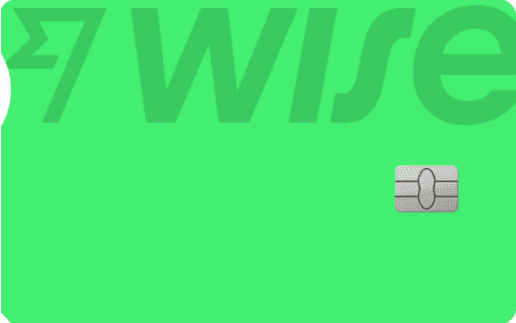
Revolut card
Revolut offers several different account plans so you can pick the one that suits your needs and spending, including some with no monthly fees. All account plans let you hold and exchange multiple currencies in the same account, and there’s no-fee to spend currencies you hold.
Depending on the plan you pick you’ll get fixed levels of no-fee ATM withdrawals and mid-market currency exchange every month. Low fees apply once you exhaust your plan no-fee limits.
Read a full Revolut review here

What is the currency exchange rate for £ 1 GBP/MAD?
It’s helpful to get to know the live GBP/MAD rate so you can easily calculate how much things are costing you while you’re on your trip abroad.
The rate you need to focus on is the mid market rate, which is the one banks and major currency services get when buying and selling currencies. This rate isn’t always passed on to customers. Instead you may find that the GBP/MAD rate you get when exchanging travel cash includes a markup - an extra fee.
Find the GBP/MAD mid-market rate from a currency conversion site or a website like this, so you can keep an eye on the market and compare the rates you’re offered as you travel against the mid-market rate easily.
Should I exchange GBP to MAD before traveling to Morocco?
It’s a good idea to exchange GBP to MAD before you head off to Morocco, as you can often find a better exchange rate and lower overall costs before you travel.
When you’re in Morocco you’re going to need MAD in cash for some of your spending - particularly when tipping or making smaller value purchases. Buying your MAD travel money in advance can get you better GBP/MAD exchange rates, and saves you wasting precious time shopping around for a good deal once you arrive in Morocco.
Tips for exchanging money in Morocco
At merchants and ATMs, make sure you’re charged in MAD. If you’re asked if you’d rather pay in GBP instead, say no. That’s a sign of dynamic currency conversion, which usually means extra costs. ATMs are widely used in Morocco so withdrawing money in target-currency is easy, particularly in big cities and Rabat.
Best place to exchange currency in Morocco
You can get your MAD in Morocco in a couple of ways.
You’ll be able to use a travel debit card from a provider like Wise or Revolut to make convenient payments and cash withdrawals and to convert funds online.
Or if you prefer an offline solution you can carry some cash in GBP to exchange when you arrive. Currency exchange providers are often in airports and hotels, although the exchange shops in a city center are likely to be cheaper overall.
How to pay in Morocco?
You’ll need to have MAD to spend in Morocco. However, generally having a few different payment methods is a good plan. That means that if a merchant won't accept one, you’ve got a back up. It’s also reassuring to know you have a different way to pay if you were unlucky enough to have a card or some travel cash stolen. Here are your key payment options in Morocco.
1. Debit or credit card
Card payments can be helpful in shops, restaurants and hotels but there will be places where cash is also important. Order a travel card from a provider like Wise or Revolut for cheap and fast transactions, including card payments and cash withdrawals as and when you need travel money in MAD.
2. MAD cash
It’s worth having some cash with you at all times. You may want to exchange money to MAD before you leave, but it’s also usually convenient to make ATM withdrawals locally once you arrive in Morocco.
You’ll usually find you can use a card to make payments in Morocco, but carrying some cash in MAD is also reassuring. It’s often easier for tipping and making smaller purchases, plus you’ve got a nice backup if your card is ever out of action for some reason.
It’s a smart idea to have both a card and some cash in MAD when you’re in Morocco. Some merchants will prefer cash, but having a card for higher value payments and in busier more tourist places is also convenient. Consider using a travel card from a provider like Wise or Revolut alongside your cash for flexibility.
Paying for the trip in GBP
If you’re paying for things in Morocco with a GBP bank card you might find a foreign transaction fee is added. This pushes up your costs when you spend in a foreign currency, and can be tricky to calculate.
Travel debit cards don’t always work this way. When you make purchases in Morocco using the Wise card you can either choose to convert your account balance to MAD in advance in the Wise app, or just leave your balance in GBP and let the card handle the transaction when you pay. You’ll always get the lowest available fee and there are no extra foreign transaction charges.
Conclusion - Currency in Morocco
You won’t be able to pay in GBP when you visit Morocco - so learning about the currency you need is essential. Whether you decide to use a travel debit card from a service like Wise , or stock up on MAD in cash in advance, knowing the mid-market exchange rate can help you get the best available deal. Use this guide to learn all you need to know about the options, rates and fees for exchanging GBP to MAD, and make your money go further while you’re away.
The official currency in Morocco is MAD. You can’t usually pay in GBP in Morocco, so you’ll need to plan in advance to get your travel money sorted. Consider ordering a travel debit card from a service like Wise, for low cost conversions to MAD and convenient spending and withdrawals - and remember that knowing the GBP to MAD mid-market exchange rate is essential to check you’re getting a fair deal on currency exchange.
FAQ - Currency in Morocco
What is the currency in morocco called.
The official currency in Morocco is the Moroccan Dirham. You may also see the code MAD and the currency symbol د.م..
What's the currency in Rabat?
The official currency in Rabat is the Moroccan Dirham. You’ll only be able to spend in MAD while you’re there.
What is the old Morocco currency?
Today the currency in Morocco is the Moroccan Dirham. If you’re worried about currencies changing, why not get a travel debit card from a service like Wise which will automatically pick the currency needed in your destination when making a payment - with no penalties or inflated fees.
What is the best currency to take to Morocco?
You’ll only be able to spend in MAD while you’re in Morocco. Carrying some money in cash and using a travel debit card from a service like Wise is usually the best way to spend while you’re away from home.
Discover other currencies around the world

- From Casablanca
- From Marrakech
- From Agadir
- From Tangier
- CUSTOM TOURS
- PRIVATE TRANSPORT
- Excursions from Marrakech
- Excursions from Fez
What currency should I bring for my trip to Morocco?
One of the most frequently asked questions people search before their visit to Morocco is, “What currency should I bring for my trip to Morocco?”.
Check here some of our best-selling tours:
The local currency of Morocco is the Moroccan Dirham ( MAD ), which is made up of 100 santimat (or centimes). The Moroccan dirham is a closed currency, you can’t take it out of Morocco. That means also it can only be bought once you arrive in the country.
US Dollars, Euros, and British Pounds Sterling are the currencies you can exchange in Morocco. Australian and Canadian dollars aren’t accepted. In some tourist places you can pay for hotels, restaurants, and activities in USD, EUR, or GBP, but only banknotes are accepted. Although, you’ll always get a better deal paying in the local currency.
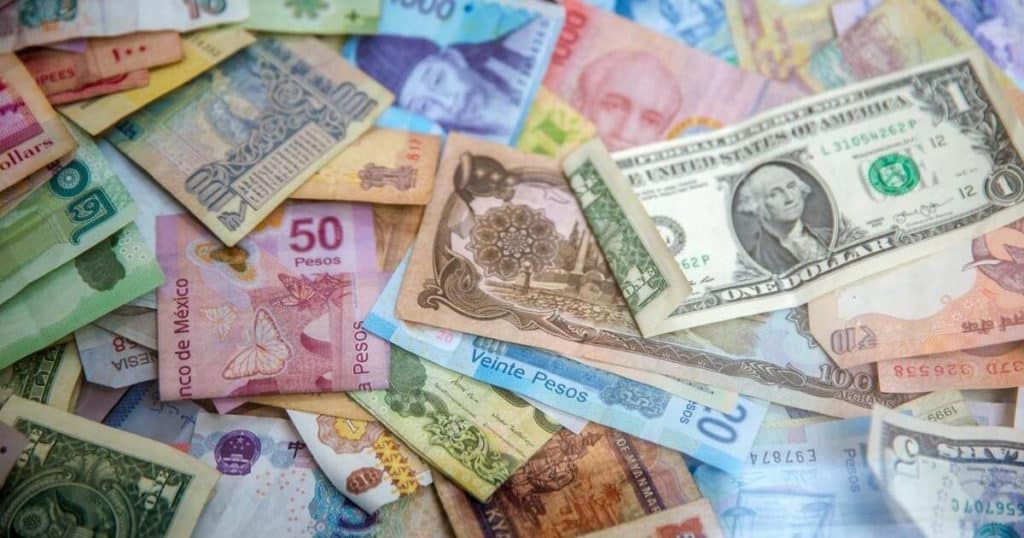
In addition, you can get MAD from ATMs using your debit card. Withdrawing cash on a credit card is less favorable. Visa and MasterCard are commonly accepted at tourist sites and large cities, however, may not be accepted in rural areas or smaller shops.
Avoid changing all your money at the airport as the exchange rates are usually more favorable in the cities.
As you can’t take out of Morocco the local currency, you’ll need to spend any cash you have. Another option is to convert it back before you depart from the country. To save currency conversion fees, try to plan your spending in advance, and make sure you don’t have any cash left over when you’re traveling back home.
Did you read our article “What currency should I bring for my trip to Morocco”, and want to know more information about the country? Please read our next article “ Do I need a visa to enter Morocco? “.
Recent Comments
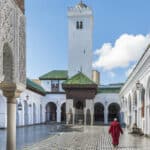
Morocco’s Grand Voyage: A Month of Exploration

Middle Atlas Mountains Day Trip
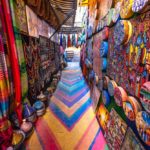
Secrets of the North
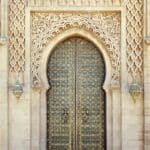
Northern Treasures of Morocco
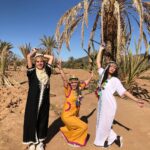
Sun, Sand, and Souks

Discovering the Enchanting South of Morocco
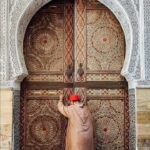
Exploring Fez’s Monuments in a 4-Hour Guided Tour
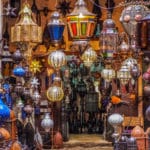
Marrakech Shopping Tour
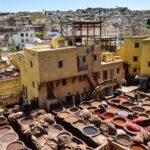
Legends of the Maghreb
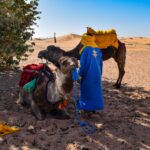
Private tour Northern to Southern Morocco
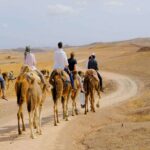
Agafay Desert Sunset Camel Ride
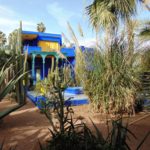
A Week of Contrasts
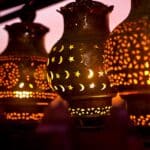
Royal Morocco tour
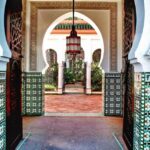
A Journey through the Kingdom’s Royal History

Hot Air Balloon
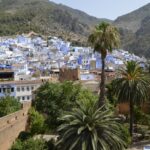
Discovering the Blue Pearl and the Cultural Capital of Morocco
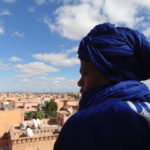
Moroccan Panorama in 2 Weeks
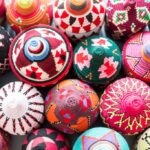
Colors of Morocco
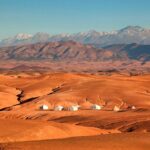
Sunset, Stars and Serenity: A night in Agafay desert
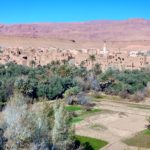
Desert trip from Ouarzazate
Tours by category.
- Morocco Desert Tours
- Outdoor Activities
- Cultural & Thematic Tours
- Indulgence & Luxury Tours
- Family Friendly Tours
- Small Group Tours
Recent Posts
- Maximize Your Moroccan Journey with a Private Van
- Top Marrakech Desert Tours with Gboo Morocco Tours
- Morocco Family Tours
- Top Rated Morocco Tour Operator Unforgettable Adventures Await
- Private Trips in Morocco – Discover the Charms of the Exotic Land
Nomadic Matt's Travel Site
Travel Better, Cheaper, Longer
Morocco Travel Guide
Last Updated: September 2, 2023
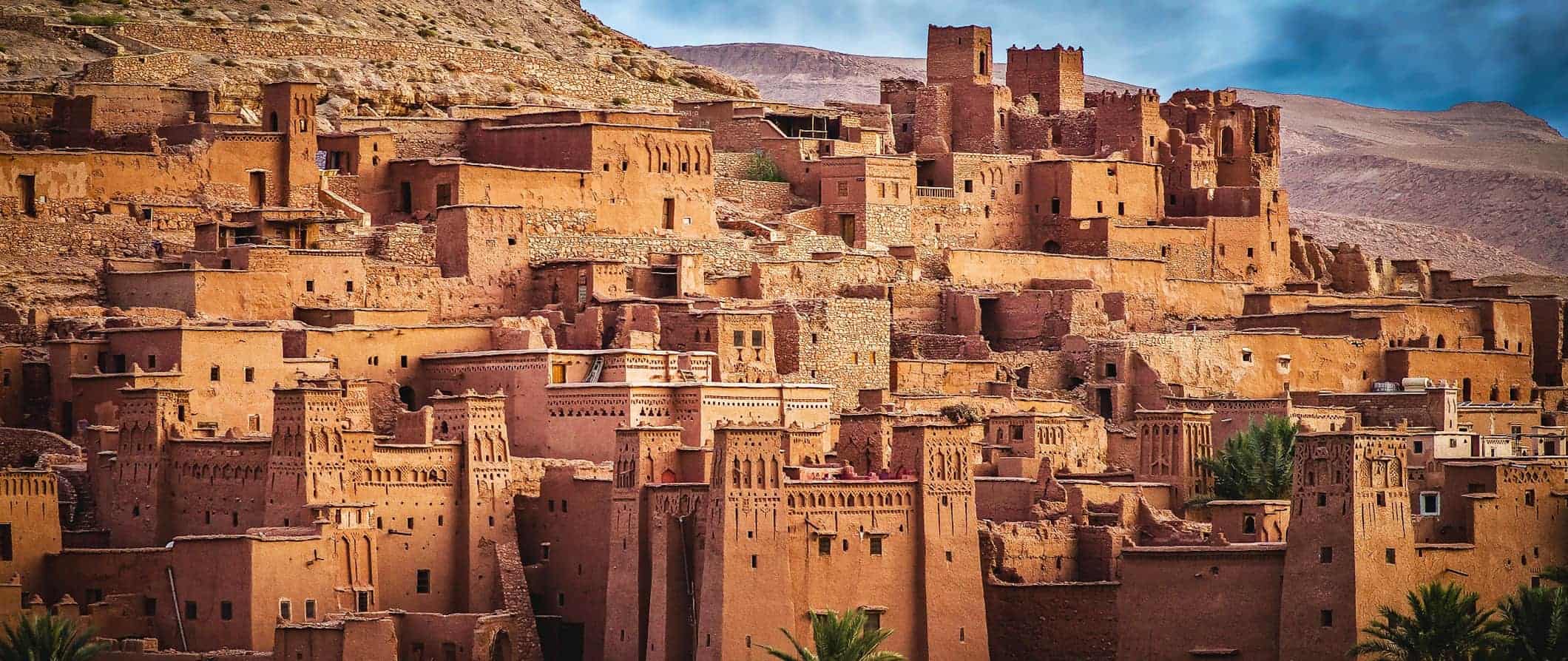
Chaotic. Colorful. Eye-opening. Visiting Morocco is an intense experience. My time there was challenging, but it was also a reminder that the best part of travel is embracing the uncomfortable.
Once part of the Carthaginian Empire, the first independent Moroccan state emerged around 225 BCE as the Berber kingdom of Mauretania. That kingdom eventually became a Roman province, though, by the 7th century CE, Muslim conquest of North Africa was in full swing. A French Protectorate from 1912-1956, Morocco gained its independence in 1956 and has been an independent state ever since.
I loved my time in Morocco. I gorged on couscous, drank my body weight in mint tea, hiked, and absorbed the hectic sights and sounds of the country.
From the high Atlas Mountains to the desert to the coasts, Morocco is a marvelous country that mesmerizes. True, the sprawling and disorderly medinas can test your patience, but they reward your senses each and every visit.
Use this Morocco travel guide to plan your trip, see the best the country has to offer, save money, and avoid the common pitfalls that waylay unsuspecting travelers!
Table of Contents
- Things to See and Do
- Typical Costs
- Suggested Budget
- Money-Saving Tips
- Where to Stay
- How to Get Around
- How to Stay Safe
- Best Places to Book Your Trip
- Related Blogs on Morocco
Click Here for City Guides
Top 5 things to see and do in morocco.
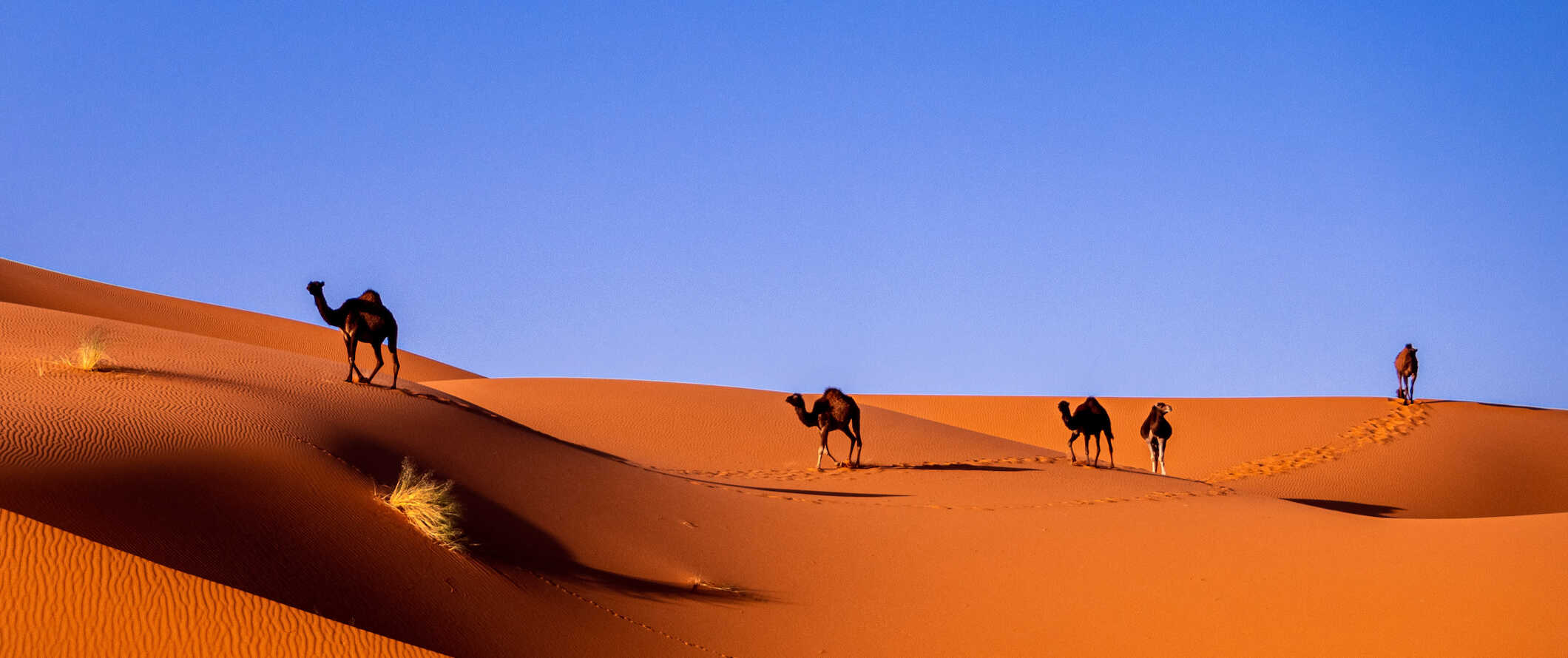
1. Explore Marrakesh
Spend some time in the Djemaa el-Fna, where you can find exotic street performers, tattoo artists, musicians, and chefs. After that, wander around the medina, explore the souks, eat in the market, see the old city, and enjoy Morocco’s most international city. Marrakesh has it all.
2. Sleep in the Sahara Desert
The Sahara is vast, empty, and spectacular. Spending the night in a simple tent on the dunes was my favorite activity while in the country and I highly recommend you try it too. The stars go on forever and there’s no light pollution to block them out. (Skip the camel ride, though!)
3. Explore the blue streets of Chefchaouen
Chefchaouen is a small city located in the middle of the Rif Mountains. It is very relaxed, offers reasonable accommodations, and is visually stunning as the streets and buildings are all painted a vibrant sky blue (you’ve probably seen it on Instagram). It’s a great place to wander, shop, and sip mint tea.
4. Visit Fez
This old and powerful city is one of the best places in the country. Its narrow streets are filled with wonderful aromas, mosques, craft shops, and crowds upon crowds of people. Though Fez can be a bit overwhelming, once you get used to the pace of the city, it’s simply magical.
5. Relax in a traditional hammam
A hammam is a steam bath popular in North Africa. They are usually found near mosques or toiletry shops and can be upscale or public (traditional). Visit a no-frills traditional bath for an authentic and enlightening experience. Public hammams cost about 10 MAD, while hotel hammams cost 300-500 MAD.
Other Things to See and Do in Morocco
1. get lost in the medinas.
The medinas are the historic hearts of each city in Morocco, part residential area, part shopping center, part food market. Shops, restaurants, markets, and homes all line the twisting and turning streets in buildings seemingly too close together and too old to stay up much longer. As someone who loves to get lost, the medinas were heaven. Word of caution: The Fez Medina is a bit unsafe, so do not go too far off the beaten path. Stick to streets with lots of people or hire a guide to show you around.
2. Trek the High Atlas
The rugged and beautiful Atlas Mountains stretch over 2,400 kilometers (1,500 miles), from the West Coast of Morocco all the way to Tunisia. This mountain range is home to Jebel Toubkal, North Africa’s tallest peak at 13,671 feet. You can hike all year round, but the best time is from April to May. The Toubkal Circuit (7 days) and M’Goun Traverse (3 days) are some of the more popular treks.

3. Trek through the Todra Gorge
Located near Tinerhir in the High Atlas Mountains, this gorge is one of the most recognized in the world and has become very popular with travelers looking to hike the canyon. It’s a challenging hike and takes around 4 hours but if you’re looking for something truly different and outdoorsy in Morocco, don’t miss out on this. For an even more unique experience, skip the day trip and stay overnight in the nearby village of Ait Baha.
4. Visit the Hassan II Mosque
The Hassan II Mosque, located in Casablanca, is a huge mosque with a minaret that stands 60 stories. It’s the second-largest mosque in Africa and the seventh-largest in the world. The walls are made of marble and the roof is retractable (the minaret also has a laser that points to Mecca at night). It took thousands of Moroccan artists a total of five years to build this detailed architectural masterpiece. Its mosaics, plaster moldings, marble and stone columns and floors, and wood ceilings are utterly impressive. It is big enough for 105,000 worshipers! Combined entry to the mosque and museum is 140 MAD.
5. Learn to cook traditional Moroccan food
Traditional Moroccan food is a blend of Berber, Arabic, Turkish, Middle Eastern, and French cuisine. Many hotels and guesthouses offer cooking classes in the big cities like Marrakesh and Fez. You can buy fresh produce from the local market and then make a traditional dish. Café Clock offers some of the best classes. With locations in Marrakesh, Chefchaouen, and Fez, this Western-influenced café is famous for its gigantic and delicious camel burger (which tastes a lot like spicy shawarma).
6. Wander thru Kasbah les Oudaias
Located in Rabat, this 12th-century Kasbah is found in the oldest part of the city. The citadel, with its narrow streets of white houses, and a great place to wander around and take some pictures. Its elevation offers beautiful views of the river and ocean.
7. Go surfing
Morocco is extremely popular among surfers. The best time to go is during the winter months when the waves are bigger and more consistent, and the air and water temperature is mild. Head to Taghazout, the most popular surf town, to catch some of the best surf in the country. A week-long stay at a surf camp, including lessons, equipment, accommodation, and airport transfer costs around 5,000 MAD.
8. Visit Tangier
This major city in northern Morocco is located on the North African coast at the western entrance to the Strait of Gibraltar. The city’s location means that many civilizations and cultures have left their mark on Tangiers since at least the 10th century BCE. From 1924-1956, Tangier was an international zone separate from Morocco, and thus became a destination for many European and American diplomats, businessmen, writers, and spies during this time. Don’t miss the Grand Mosque, the Kasbah, and strolling down the beach promenade.
9. See Atlas Studios
Named for its proximity to the Atlas Mountains, Atlas Film Studios in the city of Ouarzazate is the largest film studio in the world, covering more than 322,000 sq ft of the desert. Many big films have been shot here including: Lawrence of Arabia (1962), The Last Temptation of Christ (1988), The Mummy (1999), Gladiator (2000), Kingdom of Heaven (2005), Hanna (2011), and part of the TV series Game of Thrones . Be sure to visit the nearby Ksar of Aït Benhaddou kasbah too! It plays into what people think a ksar (fortified village) should look like. I enjoyed roaming the streets and climbing to the top for the view.
10. See the Ancient City of Volubilis
A major trading center and the southernmost settlement during Roman times, Volubilis is one of the best-preserved (and least frequented) such ruins in the world. It originally dates to the 3rd century BCE and became the capital of the ancient kingdom of Mauretania, growing even more during Roman rule. I found it empty of tourists, not built up, and open in a way that lets you see the structures up close without being behind ten feet of barriers and jostled by crowds. Most of the city is still unexcavated so the site has a very “Indiana Jones” feel to it. I’ve been to a lot of Roman ruins in my travels, but this one is my favorite. Admission is 70 MAD.
11. Enjoy the Meknes Medina
Pleasantly stroll the Medina in Meknes without being pestered. Located in Central Morocco, this authentic market sells handicrafts made in Meknes such as embroidery and Meknes “Damascene” ironwork. If the Medinas of Fez and Marrakesh overwhelm you, this is the place to go.
12. Explore Essaouira
Essaouira is located a few hours from Marrakesh on the Atlantic coast and is a popular beach destination for tourists, especially Brits. I loved the relaxed atmosphere of the city, the lack of pushy touts, the sea air, and all the fresh fish. Be sure to visit the wonderful fish market in town, where all the small fishermen sell their day’s catch. Afterward, check out the small fish stalls nearby in the main square where you can enjoy fresh, grilled seafood for cheap.
For more information on specific destinations in Morocco, check out these guides:
- Fez Travel Guide
- Marrakesh Travel Guide
Morocco Travel Costs
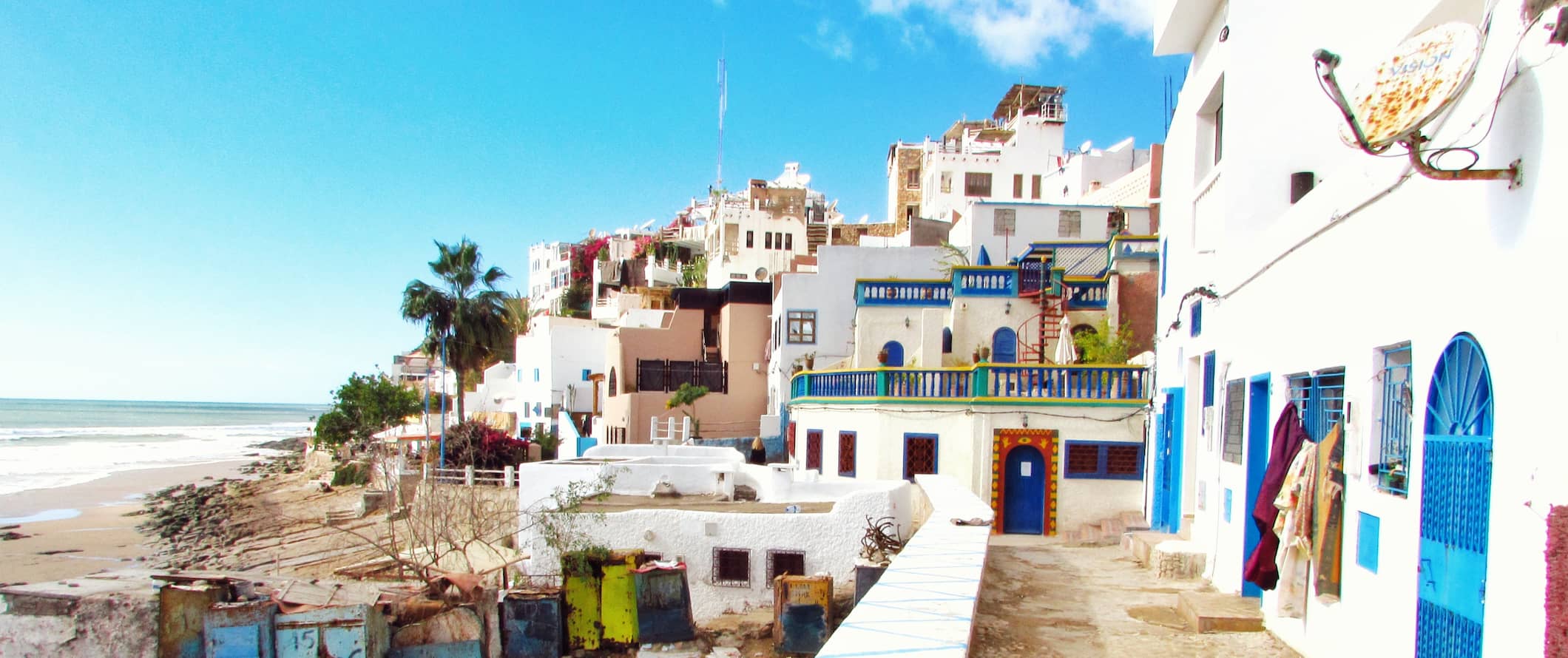
Accommodation – Dorm rooms with 6-8 beds cost between 80-110 MAD per night in the big cities like Marrakesh and Fez, and about 50-60 MAD in smaller places. Private rooms in hostels cost around 260-380 MAD. Free Wi-Fi is standard and many hostels also include free breakfast.
Budget hotels in Marrakesh and Fez cost around 270-410 MAD per night for a double room. Expect basic amenities like free Wi-Fi, TV, free breakfast, and sometimes even an outdoor pool.
Wild camping is legal in Morocco for those traveling with a tent. Locals usually don’t like people camping on or near their property, however, so only take advantage of this if you’re not going to disturb anyone. Don’t be surprised if nomads or police stop by to check on you.
Food – Moroccan cuisine is a colorful, flavorful mix of Berber, Andalusian, and Mediterranean traditions with a pinch of French and sub-Saharan cuisine to round things out. It is a land of spices, so expect flavorful meals at every turn (the traditional ras el hanout spice mix is composed of 27 different spices). Beef, goat, and lamb are some of the most common meats, usually eaten with couscous. Fish like mackerel and anchovy are also quite common, owing to the country’s location on the coast. Be sure to try pastilla , a pastry filled with meat or seafood.
Eating in Morocco can be extremely cheap, especially if you eat at the many markets. A pot of mint tea costs between 8-10 MAD. Indulge in local food, including the popular tagine , a meat and vegetables dish for about 35-55 MAD. Sandwiches, pizza, and most other dishes range between 30-50 MAD.
A fish dish in coastal cities like Essaouira costs about 100-150 MAD while a lobster is about 350-400 MAD. Seafood dinners come with drinks, salad, and bread.
For more touristy or Western restaurants, expect to spend at least 150 MAD or more per main dish.
Beer and wine cost around 70 MAD for a drink (however, there aren’t that many opportunities to drink in Morocco, so I wouldn’t factor it much into your budget).
There’s no need to buy groceries here as the food is cheap and it’s far easier to eat out! But if you do, expect to pay 200 MAD per week for groceries that include pasta, vegetables, chicken, and other basic staples.
Backpacking Morocco Suggested Budgets
On a backpacker’s budget expect to spend around 285 MAD per day. This assumes you’re staying in a hostel, eating at market stalls and cooking some meals, limiting your drinking (which is very easy to do here), using local transportation to get around, and sticking to free and cheap activities like free walking tours and public hammam visits.
On a mid-range budget of 525 MAD per day, you can stay in a private Airbnb, eat out for all your meals, take the train between cities, and do more paid tours and activities like museum visits and camping in the Sahara.
On a “luxury” budget of 1,120 MAD or more per day, you can stay in a hotel, eat out anywhere you want, enjoy a few drinks, fly between cities or hire a driver, and do whatever tours and activities you want. This is just the ground floor for luxury though. The sky is the limit!
You can use the chart below to get some idea of how much you need to budget daily, depending on your travel style. Keep in mind these are daily averages — some days you’ll spend more, some days you’ll spend less (you might spend less every day). We just want to give you a general idea of how to make your budget. Prices are in MAD.
Morocco Travel Guide: Money-Saving Tips
It doesn’t cost a lot of money to travel Morocco — though it’s also easy to splash out here if you want. Here are my tips for saving money in Morocco:
- Eat from street stalls – It’s extremely easy to eat cheaply in Morocco. While restaurant meals typically cost as little as 30 MAD, street food is even cheaper. For just a few dollars, you can indulge in delicious kebabs, sausages, barbecued corn on the cob, roasted chicken, huge sandwiches, and more. Stick to eating at the local markets in the medina to spend very little money on food.
- Negotiate your cab fare – Be sure to negotiate a price before you get into the taxi. There aren’t set prices and you need to bargain hard. Ask your hotel/hostel staff for price estimates so you don’t get ripped off.
- Avoid faux guides – Faux guides (or false guides) linger in the medinas and offer you tour services. Be forceful in saying no while walking away. They are persistent but eventually give up if you keep walking.
- Be careful of thieves – Petty theft, mostly involving wallets, watches, and cameras, is prevalent in the crowded medinas around the country. Stay alert and keep your valuables out of sight.
- Avoid drinking – Even though drinking is frowned upon in the country, you can still find plenty of places that allow you to drink. They are overpriced (since alcohol is not common here) and the drinks aren’t that good. Avoid drinking during your visit, save money, and align yourself closer to local norms.
- Stay with a local – If you want to save money and get some local insight into the city, use Couchsurfing. Staying with a local is the best way to get a feel for the country and learn some insider tips in the process.
- Bring a water bottle – The tap water here is generally safe to drink but you should bring a reusable water bottle with a filter just in case. LifeStraw is my go-to brand as their bottles have built-in filters to ensure your water is always clean and safe.
Where to Stay in Morocco
Looking for a place to rest your head in Morocco? Here are some of my favorite places to stay in Morocco for your next visit:
- Riad Dia (Marrakesh)
- Riad Jennah Rouge (Marrakesh)
- Kasbah Red Castle Hostel (Marrakesh)
- Funky Fes (Fez)
- Aline Hostel (Chefchaouen)
- The Chill Art (Essaouira)
- Atlantic Hostel (Essaouira)
- Baytalice (Tangiers)
How to Get Around Morocco
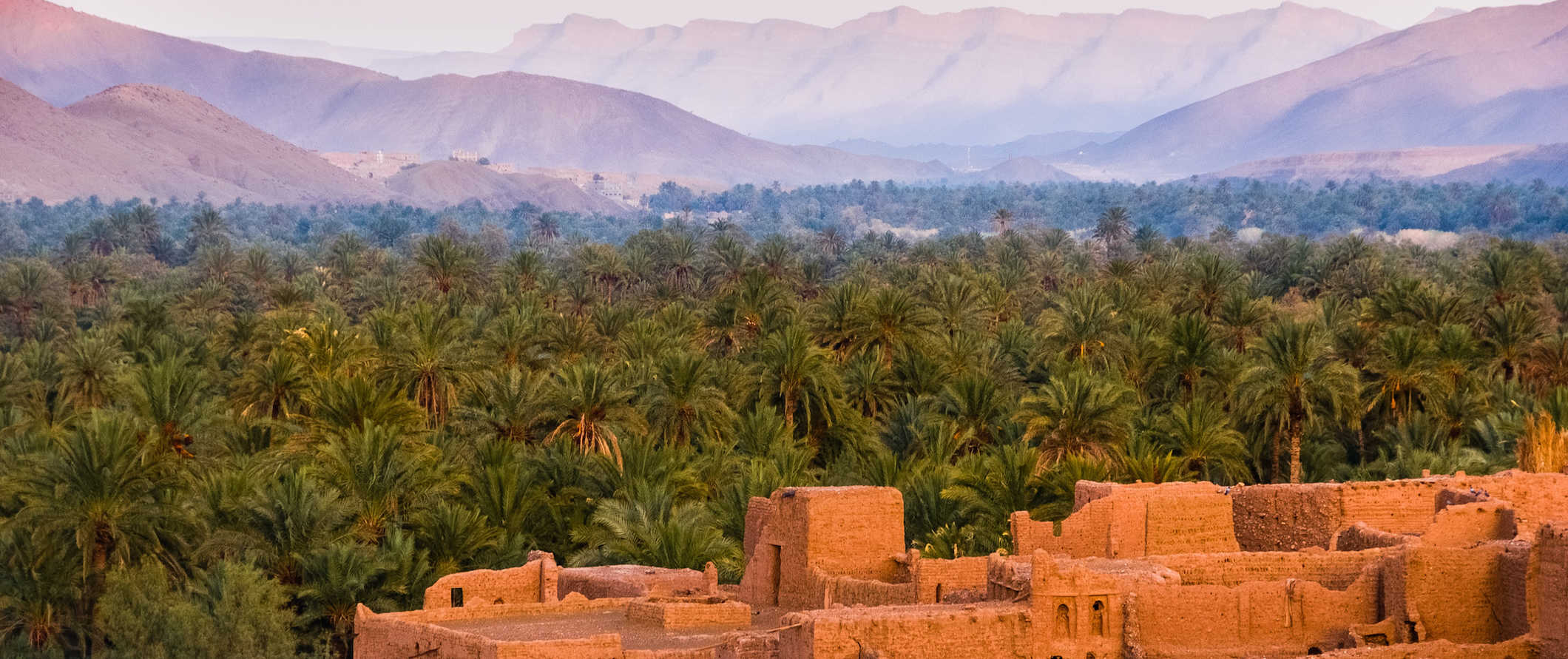
Public transportation – Public transportation can be hit or miss in Morocco. The bigger cities, like Marrakesh and Casablanca, have public bus services, but the buses are old and overcrowded and the routes are hard to figure out.
Instead, most people use petits taxis to get around town. These are small vehicles that can hold up to three people and are prevalent all over the country. They’re very cheap, although there may be a surcharge after 8pm. To ensure you get a fair fare, negotiate your price upfront.
Metered taxis are also available in bigger cities like Marrakesh. Fares start around 7 MAD and then they charge 4 MAD per kilometer.
Grand taxis – Grand taxis are shared taxis that can carry up to six passengers and are used to go longer distances between neighboring towns/cities. They won’t leave until the taxi is full but generally wait times aren’t so bad. You can locate one near just about any taxi stand or bus/train station. If you have a lot of luggage, you may have to pay extra. You should arrange your fare ahead of time.
Bus – Intercity buses are a cheap and efficient way to get around Morocco, especially compared to other methods of transportation. The four most popular operators are:
- SATAS (regional)
- Ghazala (regional)
CTM and Supratours are the most reliable and have comfortable buses with air conditioning. You can book your tickets online or simply show up at the bus station. The websites aren’t terribly reliable or efficient to use. A 4-hour bus ride from Marrakesh to Casablanca is about 75-110 MAD, while a 6.5-hour ride from Marrakesh to Tangier is 260-275 MAD. Casablanca to Fez is 95-120 MAD.
Train – Morocco’s national rail network is operated by ONCF and services some of the country’s major cities like Marrakesh, Casablanca, Rabat, Meknes, and Fez. The trains are comfortable and they’re usually on time, but disruptions do occasionally happen. There is now a high-speed rail running between Casablanca to Fez too. You can look up schedules and prices on ONCF .
The 2.5-hour train trip from Marrakesh to Casablanca costs about 50 MAD, while the 4.5-hour journey from Marrakesh to Rabat starts around 150-180 MAD. Traveling from Casablanca to Fez takes 4 hours and is 50-120 MAD. The journey from Fez to Marrakesh takes 6.5 hours and costs 195 MAD.
Flying – Royal Air Maroc is the main domestic airline, and they sometimes have good sales. An hour flight from Marrakesh to Casablanca starts at around 870 MAD, while a one-hour flight from Marrakesh to Fez starts at 520 MAD.
Car rental – Car rental isn’t typically recommended in Morocco. Drivers are aggressive and accident rates are high! But if you want to venture off the beaten path, it’s a good way to go. You can find rentals starting from 200 MAD per day (sometimes cheaper).
When to Go to Morocco
The best time to visit Morocco is during the country’s shoulder seasons, which run from April to May and September to November. The temperatures are nice and warm during this time and there is less tourist traffic. (However, this changes if you plan on spending most of your time surfing the coast or hiking the Atlas Mountains.)
Summer lasts from June to August, and it can be ridiculously hot all over the country during this time — especially the further south you go (including in Marrakesh and Fez). A lot of people head to the coast to enjoy places like Tangier, Rabat, and Essaouira. Expect highs above 35°C (95°F).
Winters (December-February) are mild, but it can get quite cold in the evenings. Temperatures drop as low as -3°C (27°F) in Marrakesh and the Atlas Mountains receive heavy snowfall. Winters in the north and along the coast are very wet. Overall, it’s not a great time to be here.
The best time to go hiking in the Atlas Mountains is from April to May (spring) and September to October (fall). It’s mild during these months and there’s little risk of severe weather. Summer is the best time to enjoy the coast, where temperatures go as high as 27°C (80°F) but the ocean breeze offers plenty of relief.
How to Stay Safe in Morocco
Overall, Morocco is a safe destination but traveling here requires vigilance. You’re unlikely to ever be in any real physical danger in Morocco, but the petty crime and harassment require you to stay on guard — more so than in other countries.
Women traveling alone attract a lot of attention here and the chances of being followed and possibly groped are high. This is a particular problem in crowded medinas. Always be watchful and trust your gut. Do not bring valuables with you and keep your belongings tight to your body. Dress conservatively and avoid wearing a lot of jewelry.
Walking alone at night is generally not a good idea in the cities. If you’re unsure about an area, ask the hotel staff which areas are safe. If you need a taxi, always arrange the price in advance to avoid getting ripped off.
When out and about, locals might invite you into their shops or offer to guide you around. Always politely but firmly decline otherwise you might end up getting ripped off.
If you’re worried about getting scammed, you can read about common travel scams to avoid here.
If you experience an emergency, dial 19 for assistance (112 for mobile phones).
Always trust your gut instinct. If a taxi driver seems shady, stop the cab and get out. If your hotel is seedier than you thought, get out of there. Make copies of your personal documents, including your passport and ID. Forward your itinerary along to loved ones so they know where you are.
For more in-depth coverage of how to stay safe in Morocco, check out this post that answers frequently asked questions and concerns.
The most important piece of advice I can offer is to purchase good travel insurance. Travel insurance will protect you against illness, injury, theft, and cancellations. It’s comprehensive protection in case anything goes wrong. I never go on a trip without it as I’ve had to use it many times in the past. You can use the widget below to find the policy right for you:
Morocco Travel Guide: The Best Booking Resources
These are my favorite companies to use when I travel. They consistently have the best deals, offer world-class customer service and great value, and overall, are better than their competitors. They are the companies I use the most and are always the starting point in my search for travel deals.
- Skyscanner – Skyscanner is my favorite flight search engine. They search small websites and budget airlines that larger search sites tend to miss. They are hands down the number one place to start.
- Hostelworld – This is the best hostel accommodation site out there with the largest inventory, best search interface, and widest availability.
- Booking.com – The best all around booking site that constantly provides the cheapest and lowest rates. They have the widest selection of budget accommodation. In all my tests, they’ve always had the cheapest rates out of all the booking websites.
- Get Your Guide – Get Your Guide is a huge online marketplace for tours and excursions. They have tons of tour options available in cities all around the world, including everything from cooking classes, walking tours, street art lessons, and more!
- SafetyWing – Safety Wing offers convenient and affordable plans tailored to digital nomads and long-term travelers. They have cheap monthly plans, great customer service, and an easy-to-use claims process that makes it perfect for those on the road.
- LifeStraw – My go-to company for reusable water bottles with built-in filters so you can ensure your drinking water is always clean and safe.
- Unbound Merino – They make lightweight, durable, easy-to-clean travel clothing.
- Top Travel Credit Cards – Points are the best way to cut down travel expenses. Here’s my favorite point earning credit cards so you can get free travel!
Morocco Travel Guide: Related Articles
Want more info? Check out all the articles I’ve written on backpacking/traveling Morocco and continue planning your trip:
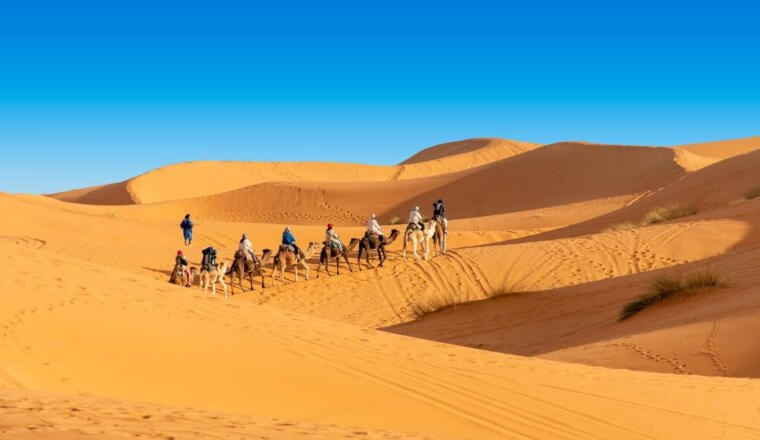
The Best Tour Companies in Morocco
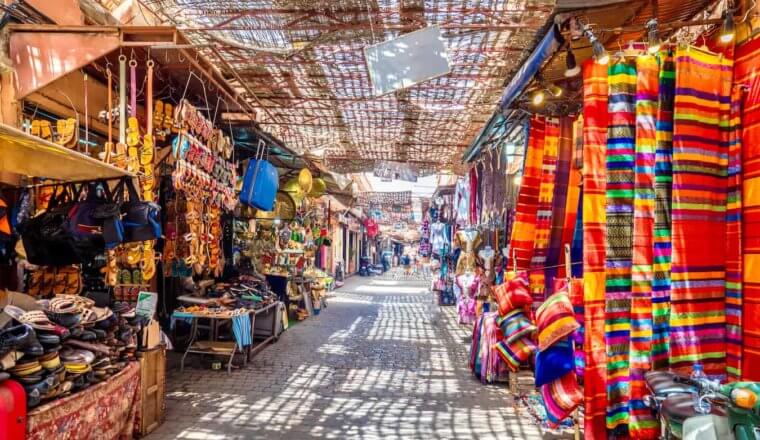
Is Morocco Safe? 11 Ways to Stay Safe During Your Visit
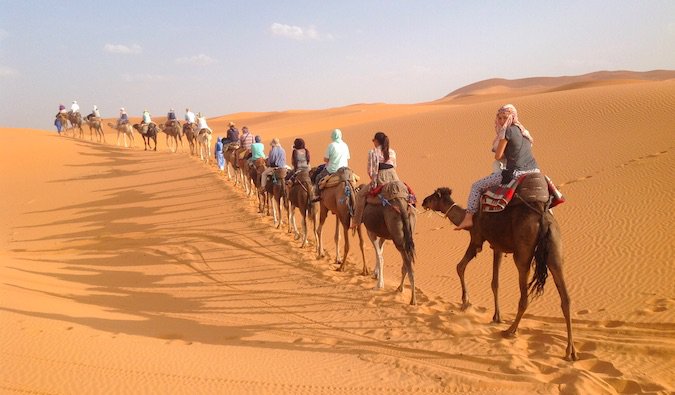
A Journey of 1,000 Mint Teas: Reflections on Traveling Morocco
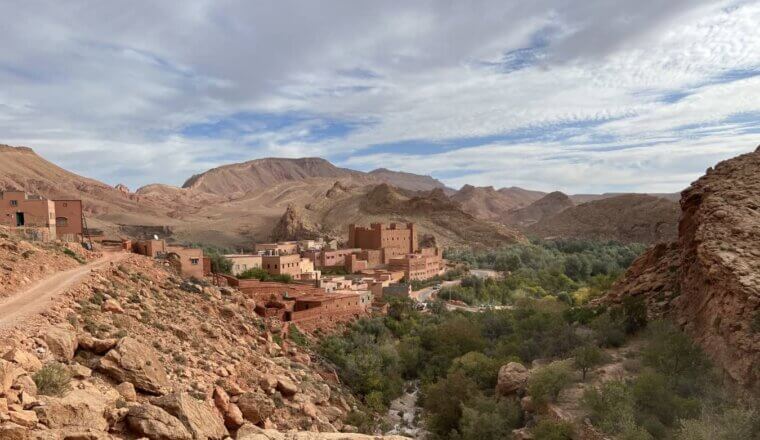
11 Reasons Why I Fell in Love With Morocco
Get my best stuff sent straight to you, pin it on pinterest.
- Where To Stay
- Transportation
- Booking Resources
- Related Blogs
Update April 12, 2024
Information for u.s. citizens in the middle east.
- Travel Advisories |
- Contact Us |
- MyTravelGov |
Find U.S. Embassies & Consulates
Travel.state.gov, congressional liaison, special issuance agency, u.s. passports, international travel, intercountry adoption, international parental child abduction, records and authentications, popular links, travel advisories, mytravelgov, stay connected, legal resources, legal information, info for u.s. law enforcement, replace or certify documents.
Before You Go
Learn About Your Destination
While Abroad
Emergencies
Share this page:
Travel Advisory July 13, 2023
Morocco - level 2: exercise increased caution.
Reissued with obsolete COVID-19 page links removed.
Exercise increased caution in Morocco due to terrorism .
Country Summary : Terrorist groups continue plotting possible attacks in Morocco. Terrorists may attack with little or no warning, targeting tourist locations, transportation hubs, markets/shopping malls, and local government facilities.
Read the country information page for additional information on travel to Morocco.
If you decide to travel to Morocco:
- Stay alert in locations frequented by tourists.
- Avoid demonstrations and crowds.
- Enroll in the Smart Traveler Enrollment Program (STEP) to receive Alerts and make it easier to locate you in an emergency.
- Follow the Department of State on Twitter and Facebook .
- Review the Country Security Report for Morocco.
- Visit the CDC page for the latest Travel Health Information related to your travel.
- Prepare a contingency plan for emergency situations. Review the Traveler’s Checklist .
Embassy Messages
View Alerts and Messages Archive
Quick Facts
Must have at least six months of validity at time of entry
One page required for entry stamp
Not required for stays under 90 days
None
Declare large quantities at entry
Export of Moroccan currency is prohibited
Embassies and Consulates
U.s. consulate general casablanca.
8 Boulevard Moulay Youssef, Casablanca, Morocco
Telephone: +(212) (522) 642-099
Emergency After-Hours Telephone: +(212)(661) 13-19-39
Fax: +(212) (522) 29-77-01
The normal work week in Morocco is Monday through Friday.
U.S. Embassy Rabat
KM 5.7, Avenue Mohammed VI Souissi, Rabat 10170, Morocco
Telephone: +(212)(537) 63-72-00
Emergency After-Hours Telephone: +(212)(661)13-19-39
Fax: +(212)(537) 63-72-01
Please note that U.S. Embassy Rabat does not offer consular services and does not have entry facilities for public visitors.
Destination Description
Learn about the U.S. relationship to countries around the world.
Entry, Exit and Visa Requirements
Passports and Visas:
- You must have a valid passport with at least one blank page.
- Visas are not required for visits lasting less than 90 days. Visit the Embassy of the Kingdom of Morocco website for the most current visa information.
- Overstays: If you remain in Morocco beyond 90 days without having requested an extension of stay, you will need to appear before a judge prior to departing Morocco. Please contact the immigration office at your local police station for details. Clearance may include the payment of a fine.
- Lost/Stolen Passports: Please obtain a police report for a lost or stolen passport in the area where the loss or theft occurred. Recently, police have required evidence of U.S. citizenship prior to issuing the report of loss. In these cases, U.S. citizens may visit U.S. Consulate General Casablanca to obtain a temporary emergency passport prior to obtaining a report of loss.
- Travelers who plan to reside in Morocco must obtain a residence permit, (Certificat d’Immatriculation) Applications should be submitted to the Bureau des Etrangers of the Prefecture de Police or Commissariat Central in major cities, and to the Gendarmerie in remote areas and villages. Please see Residency Permits section under the Local Laws & Special Circumstances tab.
- Carry a copy of your U.S. passport with you at all times to have proof of identity and U.S. citizenship readily available, if needed.
- Children who possess U.S. passports and who are born to a Moroccan father may experience difficulty leaving Morocco without the father's permission, even if the parents are divorced and the mother has legal custody. Under Moroccan law, these children are considered Moroccan citizens.
- U.S. citizen women married to Moroccans do not need their spouse's permission to leave Morocco.
HIV/AIDS: The U.S. Department of State is unaware of any HIV/AIDS entry restrictions for visitors to or foreign residents of Morocco.
Find information on dual nationality , prevention of international child abduction , and customs regulations on our websites.
Safety and Security
All countries in the region remain vulnerable to attacks from transnational terrorist organizations or individuals inspired by extremist ideology with little or no warning. The potential for terrorist violence against U.S. interests and citizens exists in Morocco. Long an important counterterrorism partner with the United States, Morocco’s capable security services have taken robust actions to guard against terrorist attacks. Moroccan authorities continue to disrupt groups seeking to attack U.S. or Western-affiliated and Moroccan government targets, arresting numerous individuals associated with international terrorist groups. Nevertheless, credible information indicates terrorist groups continue to plot potential attacks in the region, including Morocco. Lone wolf attacks are difficult to detect and disrupt and can occur without warning. In December 2018, two Scandinavian tourists were murdered by three Islamic State of Iraq and Syria (ISIS) supporters in the Imlil Mountains near Marrakesh. U.S. citizens are reminded to remain vigilant with regards to their personal security.
Establishments that are identifiable with the United States are potential targets for attacks. These may include facilities where U.S. citizens and other foreigners congregate, including clubs, restaurants, places of worship, schools, hotels, movie theaters, U.S. brand establishments, and other public areas. U.S. citizen campers should camp in guarded campgrounds rather than isolated campsites.
Demonstrations: Demonstrations occur frequently in Morocco, are typically focused on political or social issues, and are only rarely confrontational or violent.
- During periods of heightened regional tension, large demonstrations may take place in major cities.
- By law, all demonstrations require a government permit, but spontaneous unauthorized demonstrations, which have greater potential for violence, can occur. In addition, different unions or groups may organize strikes to protest an emerging issue or government policy.
- Travelers should be aware of current events in Morocco and stay informed of regional issues that could resonate in Morocco and create an anti-American response.
- Avoid demonstrations if at all possible.
- If caught in a demonstration, remain calm and move away immediately when provided the opportunity.
- Exercise increased vigilance in areas that attract large crowds, such as sporting events.
Western Sahara: From 1975 to 1991, Western Sahara was the site of armed conflict between Moroccan government forces and the POLISARIO Front, which continues to seek independence for the territory. Tensions along the border in Western Sahara heightened in November 2020 when Moroccan forces conducted an operation on the border to clear a blockade by the POLISARIO Front; both sides have since engaged in a low intensity conflict along the border. There are thousands of unexploded mines in the Western Sahara and in areas of Mauritania adjacent to the Western Saharan border. Exploding mines are occasionally reported and have caused death and injury. There have been instances in which U.S. citizens suspected of being participants in political protests or of supporting NGOs that are critical of Moroccan policies have been expelled from, or not been allowed to enter, Western Sahara.
Crime: Crime in Morocco is a serious concern, particularly in major cities and tourist areas.
- Use common sense and the same personal security measures you would normally use in a large U.S. city or tourist destination.
- Do not leave bags unattended. Keep them in sight and avoid placing passports, cash, cell phones, or other valuables in the outer pockets of backpacks or purses, or on tables in public places. Do not leave bags slung over the backs of chairs, on hotel or store counters, on top of your suitcase or larger travel bag, or out of your physical control in hotel lobbies, train stations, restaurants, and other public locations.
- Aggressive panhandling, pick-pocketing, purse-snatching, theft from unoccupied vehicles, and harassment of women are the most frequently reported issues.
- Criminals use weapons, primarily knives, during some street robberies and burglaries. These crimes have occurred at any time of day or night, not only in isolated places or areas less frequented by visitors, but in crowded areas as well.
- Residential break-ins also occur and have on occasion turned violent, but most criminals look for opportunities based on stealth rather than confrontation.
- Travelers should avoid soccer stadiums and their environs on days of scheduled matches as large groups of team supporters have been known to become unruly and harass and assault bystanders.
- Joggers should be mindful of traffic and remain in more heavily populated areas. It is always best to have a jogging companion, dress modestly, and avoid isolated areas or jogging at night.
- At night and when moving about unfamiliar areas, avoid traveling alone and utilize “petit” taxis which vary by color in the major cities (Casablanca-Red, Rabat-Blue, Marrakech-Tan, etc.).
- Taxis* in Morocco are generally crime-free during day time, although city buses are not considered safe.
- Trains are generally safe, but theft, regardless of the time of day, sometimes occurs.
- Avoid carrying large sums of cash and be particularly alert when using ATM machines. In the event you are victimized by crime or an attempted crime, please report the incident to the local police and the U.S. Consulate General in Casablanca as soon as possible.
* NOTE: Some popular web-based ride-sharing services have operated in Morocco; however, the French-based company Heetch is currently the only service legally authorized to operate by the Moroccan Government. Media report that drivers of web-based ride-sharing services have been harassed and assaulted by regular taxi drivers in the recent past.
Victims of Crime: U.S. citizen victims of crimes should contact the local police at 19 from a land line or 190 from a mobile phone, and the U.S. Consulate in Casablanca at (212) 522 64 20 99. Remember that the local authorities are responsible for investigating and prosecuting crimes. See our webpage on help for U.S. victims of crime overseas .
- help you find appropriate medical care;
- assist you in reporting a crime to the police;
- with written consent, contact your relatives or friends;
- explain the local criminal justice process in general terms;
- provide a list of local attorneys;
- provide information on victim’s compensation programs in the United States;
- provide an emergency loan for repatriation to the United States and/or limited medical support in cases of destitution;
- help you find accommodation and arrange flights home;
- replace a stolen or lost passport.
Tourism : The tourism industry is generally regulated in major tourist areas. Hazardous areas/activities are identified with appropriate signage and professional staff is typically on hand in support of organized activities. However, outside of these areas, the tourism industry is unevenly regulated, and safety inspections for equipment and facilities do not commonly occur. Hazardous areas/activities are not always identified with appropriate signage, and staff may not be trained or certified either by the host government or by recognized authorities in the field. In the event of an injury, appropriate medical treatment is typically available only in/near major cities. Outside of a major metropolitan center, it may take more time for first responders and medical professionals to stabilize a patient and provide life-saving assistance. U.S. citizens are encouraged to purchase medical evacuation insurance. See our webpage for more information on insurance providers for overseas coverage.
Local Laws & Special Circumstances
Criminal Penalties: You are subject to local laws. If you violate local laws, even unknowingly, you may be expelled, arrested, or imprisoned. In some places you may be taken in for questioning if you don’t have your passport with you.
Furthermore, some laws are also prosecutable in the U.S., regardless of local law. For examples, see our website on crimes against minors abroad and the Department of Justice website.
Arrest Notification : If you are arrested or detained, ask police or prison officials to notify the U.S. Consulate immediately. See our webpage for further information.
- Crimes of fraud, including passing bad checks, non-payment of bills (including hotel bills), or breach of contract are considered serious in Morocco and can often result in imprisonment and/or fines.
- Bail generally is not available to non-residents of Morocco who are arrested for crimes involving fraud.
- Debtors can be held in prison until their debts are paid or until an agreement is reached between the parties.
- Passports may be seized by the Moroccan government to guarantee that debtors settle their cases.
- Debtors may be unable to work in Morocco without passports while still being held responsible for their debts.
- Prior to entering into a contract, you may want to consider consulting an attorney.
Faith-Based Travelers : Islam is the official religion in Morocco. However, the constitution provides for the freedom to practice one's religion. The Moroccan government does not interfere with public worship by the country’s Jewish minority or by expatriate Christians. Proselytizing is, however, prohibited. In the past, U.S. citizens have been arrested, detained, and/or expelled for discussing or trying to engage Moroccans in debate about Christianity. In February 2014, several U.S. citizens were expelled from Morocco for alleged proselytizing. Many of those expelled were long-time Moroccan residents. In these cases, U.S. citizens were given no more than 48 hours to gather their belongings or settle their affairs before being expelled. See the Department of State’s International Religious Freedom Report .
LGBTI Travelers: Consensual same-sex sexual relations are criminalized in Morocco. Penalties include fines and jail time. See our LGBTI Travel Information page and section 6 of our Human Rights report for further details.
Travelers Who Require Accessibility Assistance: While in Morocco, individuals with disabilities may find accessibility and accommodation very different from what is customary in the United States.
Students: See our Students Abroad page and FBI travel tips .
Women Travelers : Women walking alone in certain areas of cities and rural areas are particularly vulnerable to assault by men. They should exercise caution when in public spaces, including nightclubs or other social establishments. Women are advised to travel with a companion or in a group when possible and to ignore any harassment. See our tips for Women Travelers .
Customs: Travelers must declare large quantities of U.S. dollars brought into the country at the port of entry. The export of Moroccan currency (dirhams) is prohibited; however, Moroccan currency can be converted back into U.S. dollars prior to departure only if the traveler has a bank or money transfer receipt indicating he or she exchanged dollars for dirhams while in Morocco.
Moroccan customs authorities may enforce strict regulations concerning temporary importation into or export from Morocco of items such as firearms, unmanned aerial vehicle (UAV) or drones, religious materials, antiquities, business equipment, and large quantities of currency. It is advisable to contact the Embassy of Morocco in Washington, D.C., or the Moroccan Consulate General in New York for specific information concerning customs requirements.
Please see our information on Customs and Import Restrictions.
Citizenship : The Government of Morocco considers all persons born to Moroccan fathers to be Moroccan citizens. In addition to being subject to all U.S. laws, U.S. citizens who also possess the nationality of Morocco may be subject to other laws that impose special obligations on citizens of Morocco. Recently, Morocco has begun allowing Moroccan mothers of children born outside Morocco to petition for their children’s citizenship. For further information on that process, please contact the Embassy of Morocco in Washington, D.C., or the Moroccan Consulate General in New York .
Residency Permits: In order to obtain a residence permit, travelers must present (among other requirements) a criminal history record check. This record check can only be obtained in the United States. The U.S. Consulate and Embassy are unable to take fingerprints to send for FBI record requests. For specific information, individuals seeking residency should visit their local police station.
The following documents must accompany a residency renewal application:
- Birth Certificate
- Copy of the current passport
- Copy of the current Moroccan residency card
- Medical certificate from a doctor stating that the requester is free from any contagious disease
- Court record (Casier Judiciaire) obtained from the Ministry of Justice in Rabat
- 100 MAD stamp
Individuals planning on residing in Morocco or relocating to the U.S. may be asked to provide a notarized change of residence form. This form is available at the U.S. Consulate by appointment.
Sending Passports through the Mail: According to Moroccan law, it is prohibited to send passports by mail across international borders. Passports sent to or through Morocco via Fedex, DHL, or other courier will be confiscated by Moroccan authorities. Confiscated U.S. passports are eventually sent to the U.S. Consulate General in Casablanca after being processed by the Ministry of Foreign Affairs. If your passport has been confiscated, you can contact the American Citizens Services section at [email protected] to ask if it has been received.
Property: U.S. consular officers are prohibited by law and regulation from accepting personal property for safekeeping regardless of the circumstances involved. If there is concern over the protection of property left behind in Morocco due to confiscation or deportation for political, legal, or other reasons, U.S. citizens should take every precaution to ensure that available legal safeguards are in place either before, or immediately after, purchasing property in Morocco or taking up residence there. U.S. citizens are also encouraged to consider assigning a Power of Attorney, or Procuration, to be used in Morocco if necessary. More information and sample Power of Attorney forms are available on the Consulate General of the Kingdom of Morocco in New York website.
Photographing Sensitive Locations: Taking photographs of anything that could be perceived as being of military or security interest may result in problems with the authorities. As a general rule, travelers should not photograph palaces, diplomatic missions, government buildings, or other sensitive facilities and when in doubt should ask permission from the appropriate Moroccan authorities.
Professional Basketball in Morocco: The U.S. Consulate General in Casablanca is aware that there are local professional basketball teams who have made contracts with U.S. citizens to play on Moroccan teams. Some of these players have subsequently claimed they were not paid as stipulated per the terms of the contract. Individuals considering playing basketball professionally in Morocco may wish to consult with a lawyer regarding the terms of their contract prior to signing. A list of lawyers can be found on the Embassy's webpage.
Adequate medical care is available in Morocco’s largest cities, particularly in Rabat and Casablanca, although not all facilities meet Western standards.
- Emergency and specialized care outside the major cities is far below U.S. standards and may not be available at all.
- Most medical staff will have limited or no English-speaking ability.
- Most ordinary prescription and over-the-counter medicines are widely available.
- Specialized prescriptions may be difficult to fill and availability of all medicines in rural areas is unreliable.
- Travelers should not ask friends or relatives to send medications through the mail, FedEx, or UPS since Moroccan customs will impound the delivery and not release it to the recipient.
- Travelers planning to drive in the mountains and other remote areas may wish to carry a medical kit and a Moroccan phone card for emergencies.
- In the event of vehicle accidents involving injuries, immediate ambulance service is usually not available. The police emergency services telephone number is “190” (see Traffic Safety and Road Conditions section below).
The U.S. Mission in Morocco is unable to pay your medical bills. Be aware that U.S. Medicare does not apply overseas.
Medical Insurance: Make sure your health insurance plan provides coverage overseas. Most care providers overseas only accept cash payments. You may also be required to pay a deposit before being admitted for treatment. See our webpage for more information on insurance providers for overseas coverage . We strongly recommend supplemental insurance to cover medical evacuation.
If traveling with prescription medication, check with the Government of Morocco Ministry of Foreign Affairs to ensure the medication is legal in Morocco. Always carry your prescription medication in original packaging, along with your doctor’s prescription.
Vaccinations: Be up-to-date on all vaccinations recommended by the U.S. Centers for Disease Control and Prevention.
Further health information:
- World Health Organization
- U.S. Centers for Disease Control and Prevention (CDC)
Travel and Transportation
Road Conditions and Safety: Traffic accidents are a significant hazard in Morocco. Driving practices are very poor and have resulted in serious injuries to and fatalities of U.S. citizens. This is particularly true at dusk during the Islamic holy month of Ramadan, when adherence to traffic regulations is lax, and from July to September when Moroccans resident abroad return from Europe by car in large numbers.
- Drivers should exercise extreme caution when driving at night due to poor lighting systems along roads.
- Traffic signals do not always function, and are sometimes difficult to see.
- Modern freeways link the cities of Tangier, Rabat, Fez, Casablanca, and Marrakesh. Two-lane highways link other major cities.
- Secondary routes in rural areas are often narrow and poorly paved. Roads through the Rif and Atlas mountains are steep, narrow, windy, and dangerous.
- Pedestrians, scooters, and animal-drawn conveyances are common on all roadways, including the freeways, and driving at night should be avoided if possible.
- During the rainy season (November - March), flash flooding is frequent and sometimes severe, washing away roads and vehicles in rural areas.
Traffic Laws: In the event of a traffic accident, including accidents involving injuries, the parties are required to remain at the scene and not move their vehicles until the police have arrived and documented all necessary information. The police emergency services telephone number is “190”. Often Moroccan police officers pull over drivers for inspection within the city and on highways.
Traffic Fines: Confiscation of a driver’s license is possible if a violator is unable or unwilling to settle a fine at the time of a traffic stop.
If you are stopped for a speeding violation, you have the right to request the video footage documenting the infraction. Once the speeding violation is confirmed, you have three options:
- Pay the fine on the spot and obtain a receipt of payment;
- Pay at the local city’s treasury (La Perception). The police/gendarme officer will issue you a ‘ticket’ indicating the amount of the fine and keep your driver’s license until you pay the fine.
- Should you wish to contest a violation, you may file a complaint at court; however, Moroccan authorities may keep your driver’s license and vehicle registration while this lengthy process takes place.
Foreign driver’s licenses are valid for use in Morocco for up to one year. After that, foreign residents must pass the Moroccan driver’s test and obtain a Moroccan driver’s license. The test is conducted in Arabic and French. Speakers of other languages are allowed to have a sworn translator with them when taking the test.
Public Transportation: While public buses and taxis are inexpensive, driving habits are poor, and buses are frequently overcrowded. City buses are not considered safe. The train system has a good safety record. Trains, while sometimes crowded, are comfortable and generally on time. See our Road Safety page for more information. Visit Morocco’s National Tourism website for additional information.
- Train Station Hotline: 0890 20 30 40
- Bus Station Hotline: 0800 09 00 30
- Directory Enquiry- 160
Web-based ride-sharing services are not legal in Morocco; however, some well-known companies (UBER and Careem) have attempted operations with limited success. Media reports of ride-sharing drivers being harassed and assaulted by regular taxi drivers were common.
Aviation Safety Oversight: The U.S. Federal Aviation Administration (FAA) has assessed the Government of Morocco’s Civil Aviation Authority as being in compliance with International Civil Aviation Organization (ICAO) aviation safety standards for oversight of Morocco’s air carrier operations. Further information may be found on the FAA’s safety assessment page .
Maritime Travel: Mariners planning travel to Morocco should also check for U.S. maritime advisories and alerts at www.marad.dot.gov/msci . Information may also be posted to the U.S. Coast Guard homeport website (https://homeport.uscg.mil), and the NGA broadcast warnings website https://msi.nga.mil/NGAPortal/MSI.portal (select “broadcast warnings”).
For additional travel information
- Enroll in the Smart Traveler Enrollment Program (STEP) to receive security messages and make it easier to locate you in an emergency.
- Call us in Washington, D.C. at 1-888-407-4747 (toll-free in the United States and Canada) or 1-202-501-4444 (from all other countries) from 8:00 a.m. to 8:00 p.m., Eastern Standard Time, Monday through Friday (except U.S. federal holidays).
- See the State Department’s travel website for the Worldwide Caution and Travel Advisories .
- Follow us on Twitter and Facebook .
- See traveling safely abroad for useful travel tips.
Review information about International Parental Child Abduction in Morocco . For additional IPCA-related information, please see the International Child Abduction Prevention and Return Act ( ICAPRA ) report.
Travel Advisory Levels
Assistance for u.s. citizens, morocco map, learn about your destination, enroll in step.

Subscribe to get up-to-date safety and security information and help us reach you in an emergency abroad.
Recommended Web Browsers: Microsoft Edge or Google Chrome.
Check passport expiration dates carefully for all travelers! Children’s passports are issued for 5 years, adult passports for 10 years.
Afghanistan
Antigua and Barbuda
Bonaire, Sint Eustatius, and Saba
Bosnia and Herzegovina
British Virgin Islands
Burkina Faso
Burma (Myanmar)
Cayman Islands
Central African Republic
Cote d Ivoire
Curaçao
Czech Republic
Democratic Republic of the Congo
Dominican Republic
El Salvador
Equatorial Guinea
Eswatini (Swaziland)
Falkland Islands
France (includes Monaco)
French Guiana
French Polynesia
French West Indies
Guadeloupe, Martinique, Saint Martin, and Saint Barthélemy (French West Indies)
Guinea-Bissau
Isle of Man
Israel, The West Bank and Gaza
Liechtenstein
Marshall Islands
Netherlands
New Caledonia
New Zealand
North Korea (Democratic People's Republic of Korea)
Papua New Guinea
Philippines
Republic of North Macedonia
Republic of the Congo
Saint Kitts and Nevis
Saint Lucia
Saint Vincent and the Grenadines
Sao Tome and Principe
Saudi Arabia
Sierra Leone
Sint Maarten
Solomon Islands
South Africa
South Korea
South Sudan
Switzerland
The Bahamas
Timor-Leste
Trinidad and Tobago
Turkmenistan
Turks and Caicos Islands
United Arab Emirates
United Kingdom
Vatican City (Holy See)
External Link
You are about to leave travel.state.gov for an external website that is not maintained by the U.S. Department of State.
Links to external websites are provided as a convenience and should not be construed as an endorsement by the U.S. Department of State of the views or products contained therein. If you wish to remain on travel.state.gov, click the "cancel" message.
You are about to visit:
18 things to know before traveling to Morocco

Oct 15, 2023 • 7 min read
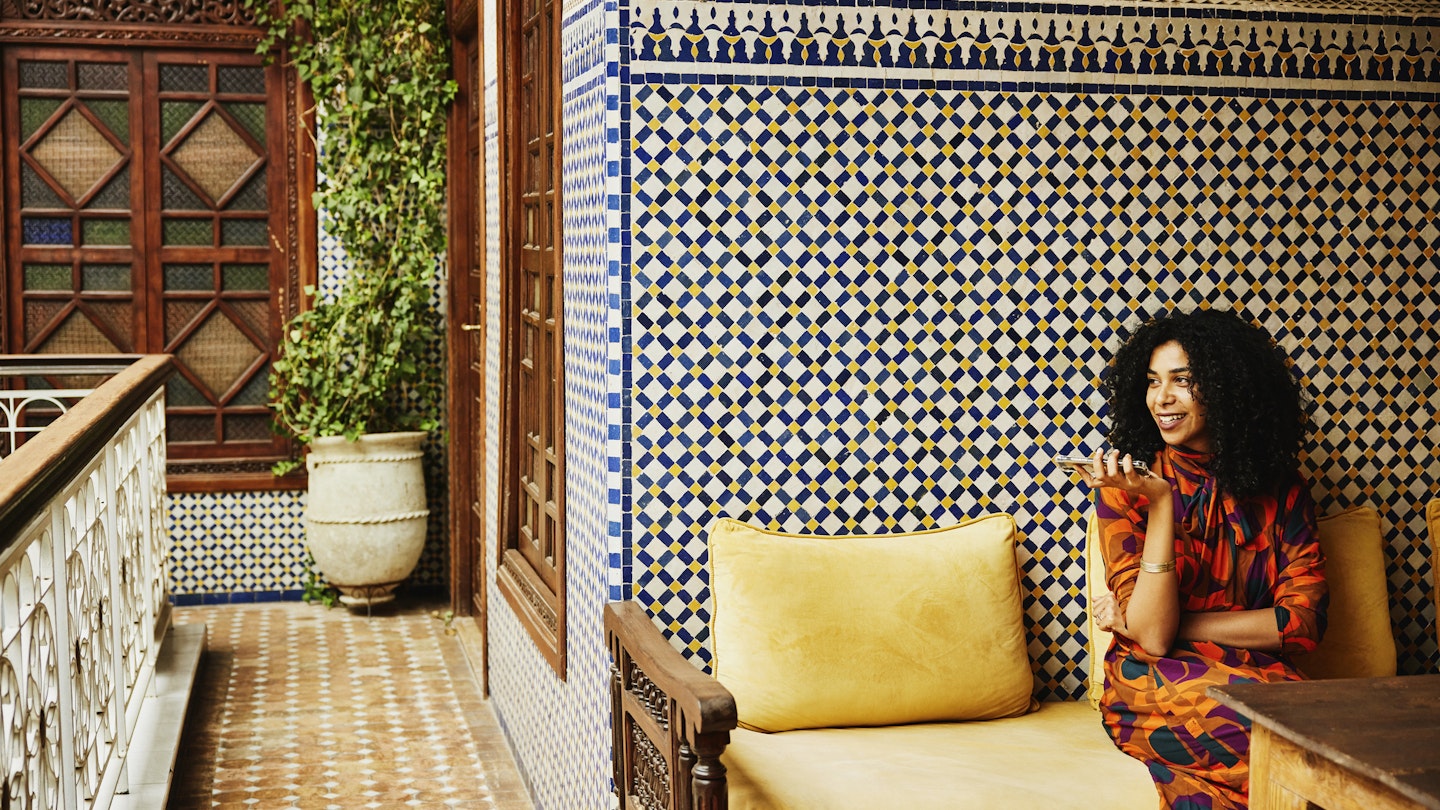
It helps to learn a little lingo: here's what to know before your trip to Morocco © Thomas Barwick / Getty Images
I am originally from the UK and have been living in Morocco since 2018. There are things I wish I'd known before jumping headfirst into the seemingly lawless world of Moroccan taxis and bargaining in the souqs.
Morocco reveals the full spectrum of real life: the good, the bad, the ugly and the oh-so beautiful. For some visitors, Morocco can be a huge culture shock. But with some awareness and understanding, it is possible to appreciate these differences, connect more deeply and see the country through a different lens without trying to change it.
1. Plan your itinerary loosely and allow for changes
Research the places in Morocco you’d like to visit but leave wiggle room for changes along the way and enjoy the spontaneity that Morocco allows. While it’s possible to pre-book tours and activities, it’s usually just as easy to reserve them when you arrive in the country.
2. Take public transport, especially in cities
Driving in cities such as Casablanca and Marrakesh is best left to the locals. Getting around Morocco is easy, even without a car. An excellent train network links many cities, including Africa’s first high-speed train, Al Boraq , between Casablanca and Tangier . A comfortable and reliable bus network connects towns big and small. Book train and bus tickets a day or two in advance to ensure the travel time you'd like.
3. Book professional guides
To get the most out of your trip to Morocco, use a guide who has in-depth expertise and speaks your language. In cities, check with the local tourism office or your accommodations for recommendations for licensed guides in the area. If you’re surfing, check ISA’s directory of certified instructors .
Hiking guides are mandatory for climbing Mt Toubkal in the High Atlas. Check with Bureau des Guides .
4. Understand the written and unwritten rules of the road
In Morocco, you drive on the right side of the road and seatbelts are mandatory, even though some taxis don't have them. Car horns are used often - not in an aggressive way, but as a means of communication.
Watch out for people, bicycles, motorcycles and animals coming from all sides. Avoid driving at night because some vehicles do not have or use their lights. Take notice of the speed limits and the roundabouts that have stoplight systems. If you’re stopped for speeding – police speed checks are common – or other penalties, having cash on you to pay fines (usually between Dh150 ($15US) and Dh300) is preferable to going to a local police station.

5. Practice the art of haggling
Haggling is a game and part of the shopping experience in Morocco . Try not to get frustrated – the ideal scenario is that both sides come away feeling like they got a fair price.
For big purchases, do your research, have a price in mind or shop around until you do. Sometimes vendors say to pay what you feel like, so if you don't have a price, ask some questions: how many hours did it take to make? Where did the materials come from and at what price?
The souqs are filled with fake tennis shoes, which are just that: fakes. Many Moroccans don't care whether their Nikes are original; they just want the best price for the latest styles.
6. Cash or card?
The Moroccan dirham is a closed currency, which means you cannot use or get it outside the country. Morocco’s rural areas still operate on a cash economy, but cards are widely accepted in towns and cities.
7. Learn some of the lingo
A mixture of French, Arabic, Amazigh and English is spoken in Morocco, depending on where you are in the country. Don't expect everyone to speak English. Apps like Google Translate can be useful, but learning some basic Arabic phrases will reward you with feeling more connected and engaged with people you meet.
8. Respect the motto of ‘God, king and country’
These words are etched on hills around the country. Islam is the state religion, and the rules of Islam are applied to personal matters in the same way that state law works in other countries. It is illegal to speak disrespectfully about religion or the king. Non-Muslims are not permitted to enter mosques or cemeteries, except the Hassan II Mosque in Casablanca . Friday is a holy day across the country, and most people take a few hours off in the afternoon to go to the mosque and eat couscous with their families afterward. Check business opening times before you visit if you're heading to a particular place on a Friday.
The holy month of Ramadan and the celebrations of Eid offer a different cultural experience, and during these times many places will be closed.
9. Things to know before going to Marrakesh
Marrakesh is the most popular city in Morocco for visitors, so pre-book entrance tickets to major attractions such as Jardin Majorelle and Musée Yves Saint Laurent online to avoid waiting in line. The Marrakesh medina comes to life around 5 p.m., but the 'pink city' is more than just the medina – spend time exploring Gueliz and step off the main boulevards onto the leafy side streets to discover pretty street cafes, bistro restaurants and small indie boutiques.
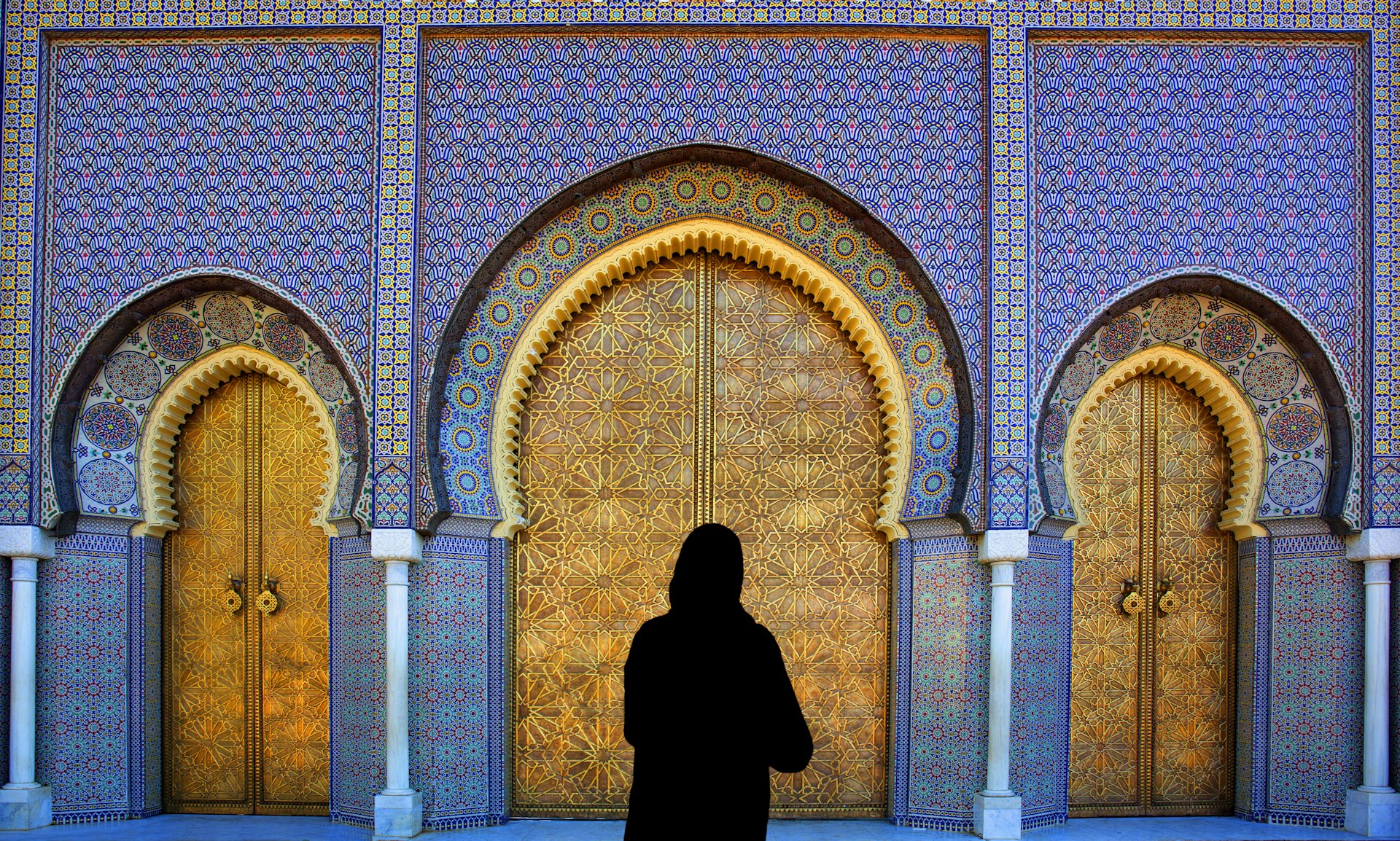
10. The dress code depends on where you are
To visit the Hassan II Mosque and other religious sites, visitors – both men and women – must cover to their shoulders and knees. Dress modestly in cities and towns to avoid unwanted attention. At bars and nightclubs, almost anything goes, but in rural areas, cover up and be respectful of the local customs.
At the beach, you can wear shorts, dresses, vest tops and swimwear including bikinis. Pack comfortable footwear that’s suitable for uneven roads and a scarf to cover your shoulders.
11. Ask before taking photos of people
No matter where you are in the world, it’s best to ask permission before taking someone’s photo. Many people are fine with it, but others aren’t. Some may ask for money. Do not take photos of military or government buildings. Drones are not allowed in Morocco without special permission.
12. Learn how to deal with the hassle
Simply ignore people who offer goods that you do not want. There's no need to be polite to everyone who wants to sell you something. By not reacting, they'll get bored and walk away.
In some places you may receive comments and, at worst, inappropriate behavior, but shouting ‘Police!’ will send these people away. In Marrakesh, there's also a high chance you will alert the undercover tourist police.

13. Can you drink alcohol in Morocco?
Even though alcohol is forbidden by Islamic law, it is widely available and sold in licensed wine shops and international grocery stores. Not all bars and restaurants serve alcohol.
14. Eat with your right hand
Moroccan cuisine such as tagines and grilled fish are traditionally eaten with bread using your right hand. The left hand is considered unclean because it’s typically the hand used when going to the toilet.
15. It’s okay to get lost
Getting lost is part of the joy of exploring Morocco with its unmarked roads, the maze of souq alleys and areas of no cell phone reception. Relax but be aware of your surroundings and ask for help if you need it.
In medinas, it’s helpful to know that if the street sign is a hexagon, it's a dead end. If it’s a square, it’s a through street.
16. Don’t drink the tap water
Morocco’s tap water is not safe to drink. Bring a water bottle with a filter to avoid buying plastic.
17. Bring tissues for public toilets
Some public toilets do not have toilet paper. Unless you are comfortable using water to clean yourself, keep a pack of tissues and some anti-bacterial hand gel or wipes on you.
18. Street cats and dogs are everywhere and part of the community
It’s best not to feed street animals from your table because they might not leave, but you can keep leftovers and feed them elsewhere on the street.
See whether a rescue center is set up in the communities you’re visiting and show your support with donations or by volunteering your time.
Explore related stories
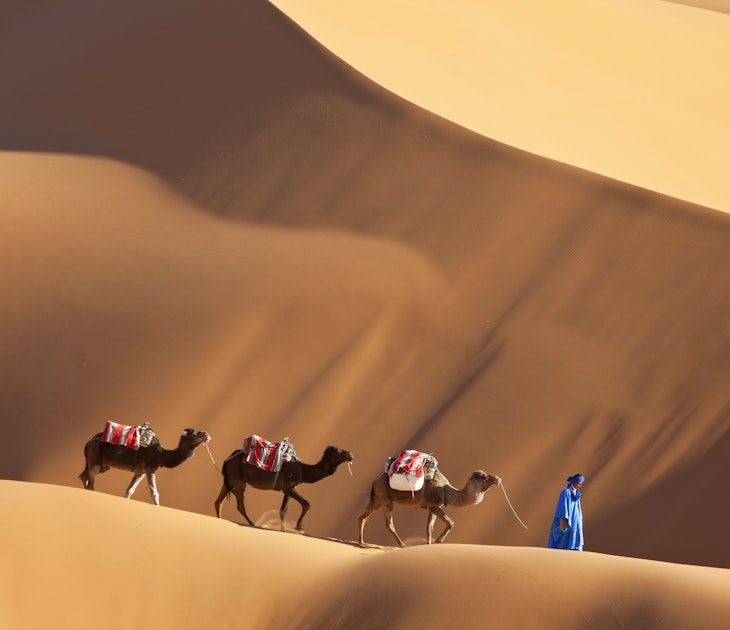
Festivals & Events
Mar 11, 2024 • 5 min read
Morocco is a fantastic year-round vacation destination, but the best time of year to travel will depend on your interests and holiday needs.
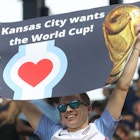
Feb 7, 2024 • 5 min read

Jan 31, 2024 • 6 min read

Jan 27, 2024 • 15 min read

Jan 17, 2024 • 8 min read
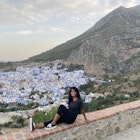
Jan 17, 2024 • 6 min read
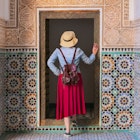
Nov 29, 2023 • 6 min read
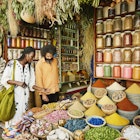
Nov 24, 2023 • 8 min read
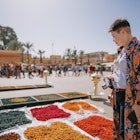
Nov 20, 2023 • 5 min read
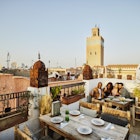
Oct 11, 2023 • 7 min read
What's the Currency in Morocco?
Links on this page, including products and brands featured on ‘Sponsored’ content, may earn us an affiliate commission. This does not affect the opinions and recommendations of our editors.
The currency in Morocco is the Moroccan dirham . As the official legal tender in Morocco, the Moroccan dirham is officially recognized by the Moroccan government, meaning you can use it to settle all financial obligations in the country, including paying for goods, services, taxes, and debts.
Besides the Moroccan dirham, no other currency is officially accepted in Morocco.
There are a couple of reasons why you might be interested to find out the currency in Morocco. Click on the reason that best applies to you below to find out more:
- I'm travelling to Morocco
- I'm sending money to Morocco
- I want to follow the Moroccan dirham exchange rate
- I'm just curious
Travelling to Morocco
With its different currency, banking system, and money customs, figuring out the best way to pay in Morocco if you travel there can be tricky. Fortunately, many forms of payments have become ubiquitous around the globe, including:
- Credit cards: Cards from VISA and Mastercard are accepted in Morocco, especially in touristy establishments.
- Debit cards: Debit cards linked to your bank account let you make purchases at point-of-sale terminals and withdraw cash.
- Cash: Having some Moroccan dirham banknotes could help for small purchases, tipping, and emergencies. You can typically exchange currency at a bank or exchange bureau before or upon arrival.
- Mobile payments: Mobile payment services like Apple Pay, Google Pay, or Alipay are an increasingly popular way to pay, but you'll need to check beforehand how available these methods are in Morocco.
- Prepaid travel cards: A reloadable debit card with a Moroccan dirham balance can give you good value, security, and convenience.
Of these methods, using a prepaid travel card is almost always the best way to pay in Morocco because they generally incur lower fees on Moroccan dirham currency exchange than credit cards or bank debit cards do. Moreover, many prepaid travel cards let you hold multi-currency balances, allowing you to dodge DCCs and other sneaky fees while travelling — all while providing the same level of security and convenience as you're used to from your credit or debit card!
Depending on where you're from, you may be able to find a prepaid travel card from your bank. Still, we recommend using a global provider like Revolut because it offers excellent exchange rates, multi-currency balances, and a travel debit card that allows you to spend on your holiday like a local and enjoy peace of mind after each tap, swipe, or cash withdrawal.
Revolut is only available in the United States, the United Kingdom, the EU/EEA, Australia, Japan, Singapore, Azerbaijan, Sri Lanka, Brazil, and Chile. If you live in Canada or New Zealand, the Wise Account is another excellent option to consider. If you're from any other country, we recommend checking out what multi-currency cards are available in your country or whether your bank offers any similar products.
Sending Money to Morocco
Every year, many people send money to Morocco for all kinds of reasons. These include supporting friends or family, paying for someone's tuition, settling business transactions, purchasing or upgrading property, and many others. If you want to send an international money transfer to a Moroccan dirham bank account in Morocco, then you should be aware of the high fees and exchange rates that go along with global money transfers with your international bank (these fees often constitute more than 10% of your transfer amount — you can read all about this in our dedicated explainer here ).
Fortunately, international money transfers are a competitive market with many trustworthy alternative providers jostling to offer you the best exchange rates (rates which almost always far outdo those you'll find at the bank!). However, because the cheapest provider to send money abroad differs depending on factors such as where you're sending from, the amount you're sending, the payment method and others, we recommend skipping the hassle and finding the cheapest provider in real time with Monito's live comparison tool below 👇
Find the best deal when sending money to Morocco:
Moroccan dirham exchange rates.
The Moroccan dirham is one of around 180 currencies worldwide. This means that the Moroccan dirham trades against all other official currencies around the globe, giving us exchange rates: a measure of how much of one currency we can exchange for another.
Exchange rates can fluctuate over time due to various economic, political, and market factors. A higher exchange rate means that the value of one currency has increased compared to another, while a lower exchange rate means the opposite. Exchange rates are essential when travelling to, buying goods and services from, or sending money to Morocco.
With Monito's currency pages, you can follow the live exchange rate to the Moroccan dirham, see which providers offer the best deals, and set up smart email alerts to follow fluctuations:
You can also use the above tool to enter your currency to see its exchange rate with the Moroccan dirham or set up email alerts to be notified when the exchange rate passes a certain value.
Key Facts About the Moroccan Dirham
Currencies and foreign money can be interesting, unique, fun to learn about because they offer a glimpse into a country's culture, history, and economics. If you're just curious the Moroccan dirham and how it's used as the currency of Morocco, here are a few key facts:
FAQ About the Currency in Morocco
The currency in Morocco is the Moroccan dirham.
The best way to get Moroccan dirham in Morocco varies depending on your needs and preferences. In general, you can use your debit or credit card to spend money in Morocco or ask your bank whether they offer a specific multi-currency card that supports Moroccan dirham balances. However, this method can rack up higher-than-expected charges, and if you're looking for the best fees and exchange rates, we recommend exploring online travel card leaders like the Wise Account and Revolut , which offer incredibly low-cost spending in dozens of currencies globally to see if they're available in your country.
The best way to send Moroccan dirham to Morocco depends on many things such as the country you're sending from, the amount of money you're sending, your payment method, and your recipient's receiving method. You can find the best deal to send Moroccan dirham to Morocco by comparing providers on Monito !
The Moroccan dirham was first adopted as the currency in Morocco on June 17, 1882.
Why You Can Trust Monito
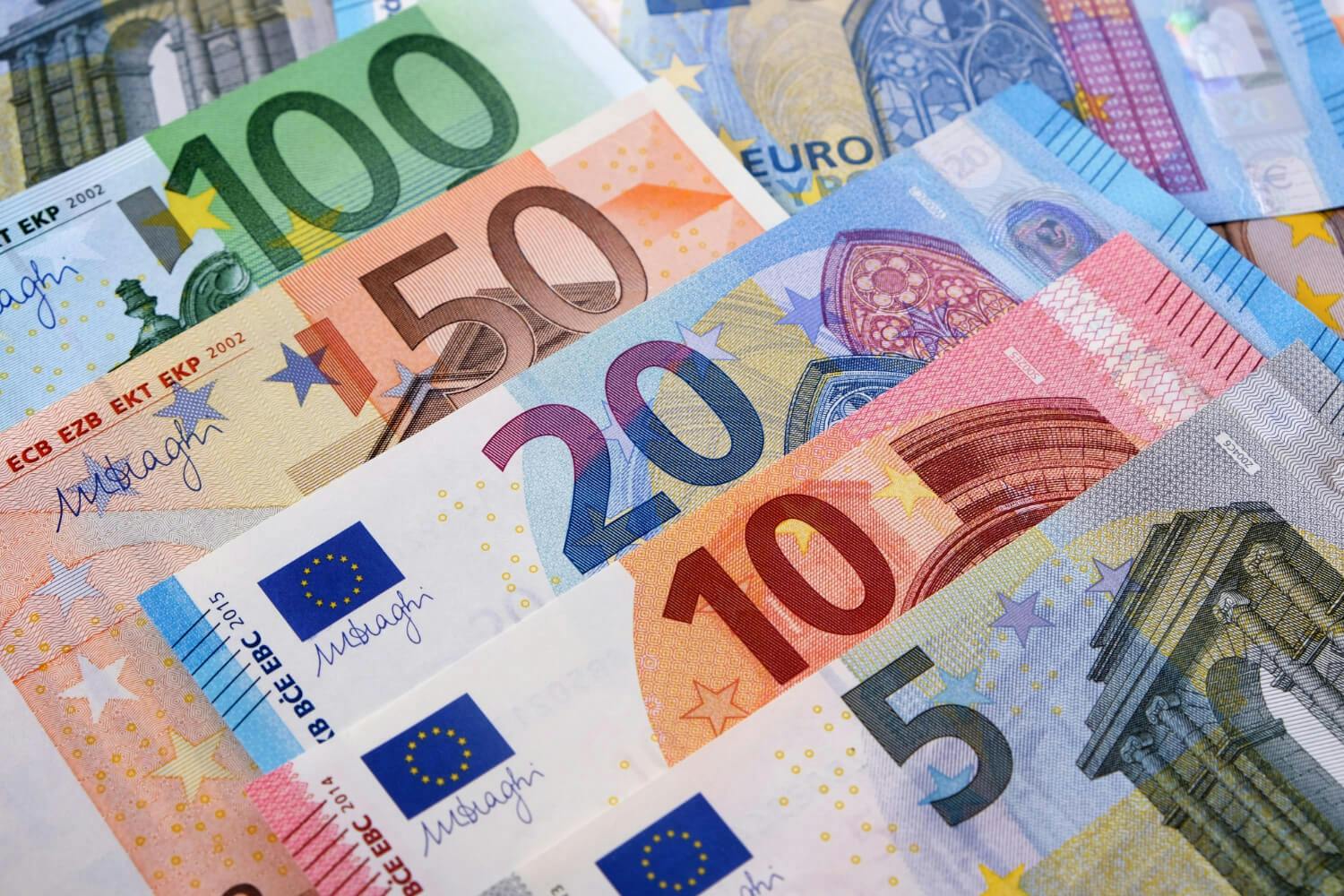
Our recommendations are built on rock-solid experience.
- We've reviewed 50+ money transfer providers
- We've made 100+ test transfers
- Our writers have been testing providers since 2013
All About Global Money Transfers
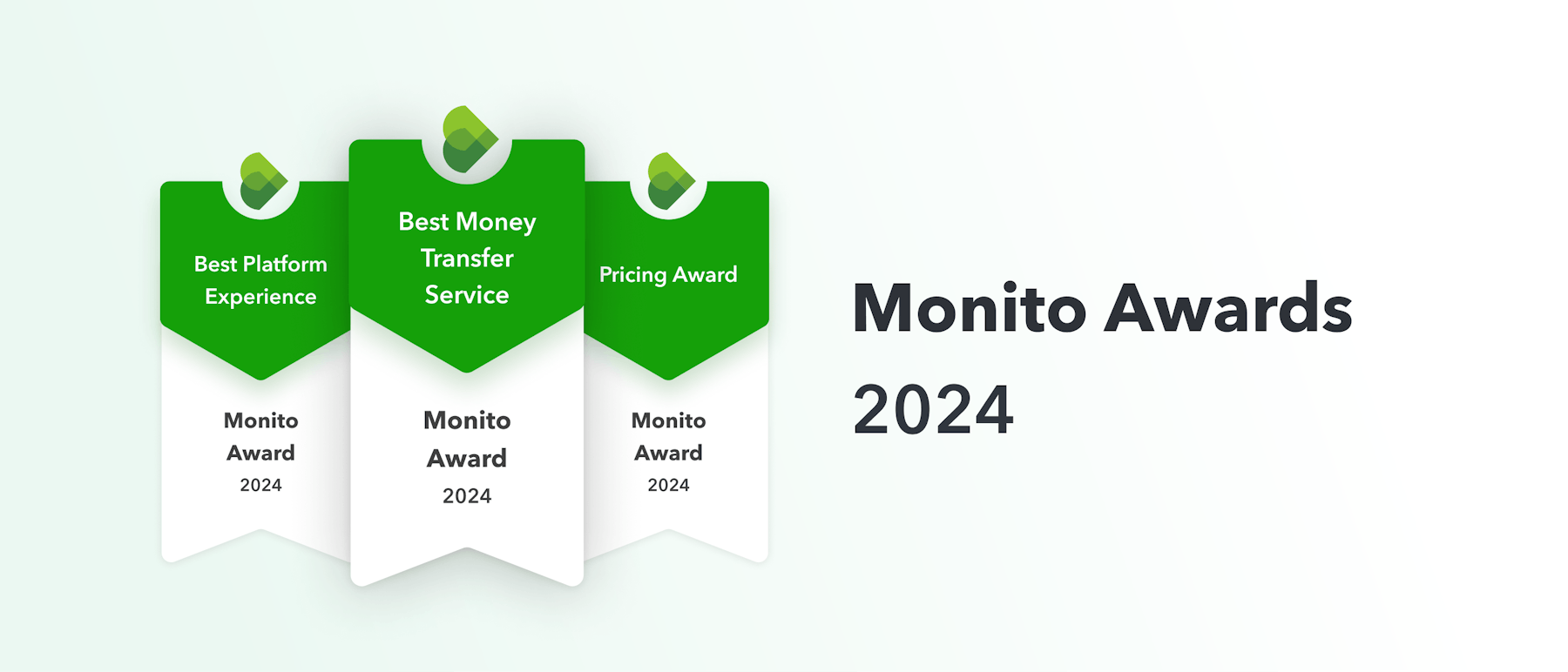
Interested in the Currencies of Other Countries?
Find a country you're interested in in the table below:
Why Trust Monito?
You’re probably all too familiar with the often outrageous cost of sending money abroad. After facing this frustration themselves back in 2013, co-founders François, Laurent, and Pascal launched a real-time comparison engine to compare the best money transfer services across the globe. Today, Monito’s award-winning comparisons, reviews, and guides are trusted by around 8 million people each year and our recommendations are backed by millions of pricing data points and dozens of expert tests — all allowing you to make the savviest decisions with confidence.
Monito is trusted by 15+ million users across the globe.
Monito's experts spend hours researching and testing services so that you don't have to.
Our recommendations are always unbiased and independent.
What is the currency in Morocco?
What currency does morocco use the moroccan dirham (mad), the history of the moroccan dirham, current bank notes in morocco, current coins in morocco, moroccan dirham to pounds, spending money in morocco, pounds to moroccan dirham, can i use my card in morocco, tipping and haggling in morocco, getting moroccan dirham before your trip, travelex in morocco, keep exploring..., travelex money card, quick links, about travelex, useful information, customer support, travelex foreign coin services limited.
Matador Original Series
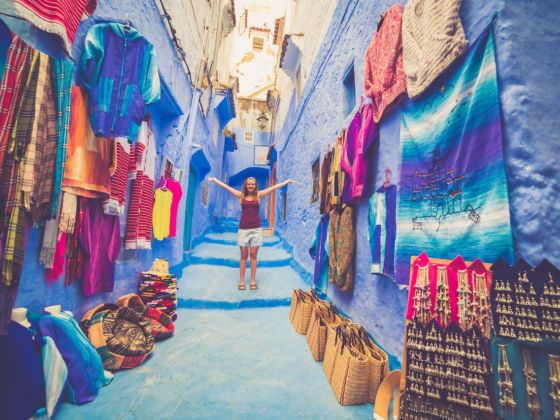
What $100 of Travel Money Gets You in Morocco
C URRENTLY, $1 is worth 9.85 Moroccan dirham. That would barely buy me a chocolate bar where I’m from, but I can feed myself twice with that amount of money in Morocco. For those planning a trip soon, here’s a heads up as to what $100 (985 dh) gets you in Morocco:
Museums and culture
$100 will give you access to some of the most unique aspects of Berber, Arab, and European culture. Break up your trip with:
2 tickets to every major site in Marrakech , including the Maison de la Photographie ($4 each) to see the Morocco history and culture history in photos, the Majorelle Gardens ($5 each) and adjoining Islamic Art Museum ($2.50 each), the Saadian Tombs ($1 each), the Ben Youssef Medersa and Marrakech Museum ($6 each), and the Bahia Palace ($1 each).
A guide for 3 days ($30 per day) to show you around any city.
One visit to a local hammam ($1.50) for a hot bath and a scrub every day for 65 days, or to a luxury hammam with a massage ($25) for 4 days.
3 day trips to the Ourika Valley ($28 each) from Marrakech with a tour company.
2 tickets to the brand new Mohammed VI Modern Art Museum ($2 each) and to the Archeology Museum ($1) in Rabat.
More like this
Restaurants.
Don’t expect much by way of fresh vegetables, but $100 will feed you with the following:
10 lamb tagines ($50), 10 Moroccan salads ($15), 10 sides of fries ($7), and 4 glasses of local wine ($24). You still have change for pastries and street food, which usually costs about $0.25 to $.50 if you’re looking to try some sfenj , or pommes frites .
Breakfast every morning for 39 days , including toast with jam and cheese, an omelette, freshly squeezed orange juice, and tea or coffee ($2.50 per day).
Dinner for two at a fancier Moroccan restaurant , including a bottle of wine ($15), pastilla (local pigeon pie with sugar, cinnamon, and almonds; $6), two chicken and lemon couscous dishes ($24), Moroccan tapas ($8), four desserts to share ($20), and a generous tip ($14).
Morocco, being a Muslim country, makes indulging in booze a bit harder than in other places, but you can still get sloshed if you want to:
35 pints of imported beer at a bar (usually around $3 a bottle) or 65 bottles of local beer purchased from a supermarket ($1.50).
6 bottles of local wine from a restaurant ($15 each).
Transportation
For $100, you can really see a lot of Morocco:
Make a return trip from Tangier to Marrakech (10 hours) in a sleeper cabin on the train ($70) and eat plenty of snacks on the way.
Rent a car for 3 days ($30 per day).
Have a calèche (horse-drawn carriage) show you around Marrakech, Meknes, and Fes for half a day in each city ($80).
Take 143 return trips on the bus between the airport in Marrakech and Djemaa el-Fna Square ($0.80).
Take a bus from Agadir to Essaouira ($6), on to Marrakech($7), followed by a train to Tangier ($20), buses to Chefchaouen ($4.50) and Fes ($6), a train to Meknes ($2), rounded out by a final bus to Rabat ($5.50).
If you’re looking to do some half-day or longer experiential tours, for $100 or less you can get:
1 trip to the Marrakech desert and palm grove on a quad bike ($73) or a food tour around Marrakech ($60).
2 visits to a Berber village in the mountains ($40).
2 food and art walking tours around Essaouira ($47).
1 day trip to Ouzoud Falls ($90).
Accommodation
If you only have $100 to budget for accommodation, there are options for all kinds of travelers:
14 nights in a private hostel room in Chefchaouen, hot shower included ($7 per night).
4 nights in a hotel room in the center of the medina in Tangier ($25 per night).
Trending Now
This cheap phone case has withstood my outdoor travel lifestyle for 3 years, google flights will refund you up to $500 if the price lowers after booking, nyc hotel charges a daily $30 ‘curation fee’ for things like wifi and one happy hour wine, at $89 a day, this 3.5-year cruise is cheaper than living in most us cities, discover matador, adventure travel, train travel, national parks, beaches and islands, ski and snow.
- United States Australia Canada France --> Germany --> Holland --> India Japan --> Ireland --> Malaysia --> Mexico --> New Zealand Philippines --> Singapore Spain --> UAE United Kingdom Other countries Global
- Profile -->
- My Rates -->
- Search Rates
Currency in Morocco MAD - Things to know
Foreign exchange guide to Morocco and the Moroccan dirham

What's in this Morocco currency guide?
- Currency Facts
- Travel Money Rates
- Travel Tips
USD/MAD Market Data
- Historic exchange rates
- Send Money to Morocco
- Expat & Business Tips
- Send to -->
What currency is used in Morocco?
The official currency of Morocco (country code: MA) is the Moroccan dirham , with symbol د.م. and currency code MAD.
Loading rates...
Things to know about the Moroccan dirham
- The Moroccan dirham is abbreviated as MAD and is divided into 100 centimes.
- The Bank Al-Maghrib is responsible for issuing and regulating the Moroccan dirham.
- The exchange rate for the Moroccan dirham is determined by supply and demand in the foreign exchange market.
- Morocco has a diverse economy, with a significant portion of the country's GDP coming from the service sector. The country is also a major producer of agricultural products such as wheat, barley, and citrus fruits, and has a growing tourism industry.
- The Moroccan dirham has been relatively stable in recent years, but the currency has faced challenges due to economic challenges such as high inflation and a large trade deficit. In addition, Morocco has faced political instability and conflict, which have also had an impact on the value of the Moroccan dirham.
The Moroccan dirham banknotes and coins
The Moroccan dirham is issued in both paper and coin form. The paper currency comes in denominations of 20, 50, 100, and 200 dirhams, while the coinage comes in denominations of 1, 2, 5, and 10 dirhams.
The design of the Moroccan dirham features various cultural and historical symbols of Morocco. The front of the banknotes typically features a portrait of a historical figure or a depiction of a cultural or natural feature of Morocco. The back of the banknotes typically features a depiction of a historical monument or a traditional Moroccan design. The coinage also features cultural and historical symbols, such as the national motto and the coat of arms of Morocco.

Travel money for Morocco
As mentioned above, the Moroccan dirham is a closed currency . Which means that you may find it difficult (or be permitted) to purchase the currency (MAD) before departure and will need to buy it upon arrival in .
For these types of destinations, using a pre-paid travel card is a good solution. As no travel cards support loading closed currencies like the MAD you will incur currency conversion or foreign transaction fees if you use a travel money card in .
However, using a pre-paid travel card is still a good idea as you can avoid ATM fees and also you can avoid using (and losing!) your main bank or debit/credit card.
Travel Ideas and Money Tips for Morocco

Morocco is a gateway to Africa, and a country of dizzying diversity. Here you'll find epic mountain ranges, ancient cities, sweeping deserts – and warm hospitality. From Saharan dunes to the peaks of the High Atlas, Morocco could have been tailor-made for travellers. With a rich history, landscape, and culture, Morocco is one of my favorite spots on Earth. With choices ranging between the red Atlas Mountains to the explosion of colors in the endless markets scattered around the ancient medinas, this place has a unique beauty all its own. Go in spring when lots of Morocco is lush and green. Don't underestimate the extremes of summer and winter, they can be brutal. Ramadan is an interesting time to travel, but be aware that many restaurants and cafes will be shut during the day.

Can you buy Moroccan Dirham abroad?
The Dirham is officially designated as a closed currency meaning it is normally only available within Morocco, however, Dirhams can sometimes be found being sold and bought in travel agencies and at major airports in several countries.
What are the import/export limits of Moroccan Dirham
The import and export of the currency is tolerated up to a limit of 2000 MAD. Currency purchased in excess of this limit during a visit to Morocco should be converted back before departing. Travellers should be advised to keep the receipts of currency exchange, as these will be required for the conversion of Dirham back to foreign currency prior to departure and before you go through passport control. You can change as many Dirhams as you have left.
At Marrakech airport the exchange rate is very similar to that in the town centre, so there is not much loss in waiting to the last minute to change your remaining Dirhams. At Casablanca airport, the exchange rate applied by the companies working out of the luggage belt area is way more favourable than the one applied in the luggage belts area.
Can you pay in euros in Morocco?
Euros and US dollars are often accepted in Morocco however make sure you are always aware what the dirhams exchange rate is. You may be able to bargain a cheaper price for purchases using a foreign currency. Although the Euro, US Dollar and, to a lesser extent, Sterling are accepted in certain tourist areas, the the Moroccan currency (the Moroccan Dirham) is required for everyday use. Dirham is normally purchased within Morocco, and can be obtained from bureau de change in airports, major banks and hotels, or from cash machines, which are widely available in major towns and cities and will take most UK credit and debit cards. Some bureau de change outside of Morocco also now offer Dirham, but they tend to offer poor rates of exchange.
Using a debit card at an ATM is often the easiest and cheapest method. In the country side and smaller towns cash points are rare and cards are often not accepted.
Can I use Credit Cards in Morocco?
Yes, especially in the bigger cities banks and ATMs are easy to find. The the more rural areas this is not the case so be sure to have some currency with you before heading cross county. This may also be convenient in cities for purchase in small shops and stalls.
Also important, before setting out on your Moroccan travels make sure you inform your bank that you will be using your Visa debit card in unfamiliar locations such as Morocco, in case their Fraud watch department flags up a panic situation and places a stop on your card, you can either write to your bank or send an email.

Getting around in Morocco.
Getting around Morocco is pretty straightforward – transport networks between towns are good, and even off the beaten track there’s often something going your way. Royal Air Maroc offers internal flights, the rail network is excellent in linking the major cities (with a high-speedTGV line between Tangier and Casablanca currently under construction), and large bus companies such as CTM are comfortable and efficient. Local networks are cheaper and more cheerful and do the job.
When travelling on public transport, it’s considered both selfish and bad manners to eat while those around you go without. Always buy a little extra to offer to your neighbours. If you offer food, etiquette dictates that your fellow passengers should decline it. It should be offered a second time, a little more persuasively, but again it will be turned down. On a third, more insistent offer, your neighbours are free to accept the gift if they wish to. If you are offered food, but you don’t want it, it’s good manners to accept a small piece anyway, and to pat your stomach contentedly to indicate that you are full. In return for participating in this ritual, you should be accorded great respect, offered protection and cared for like a friend.
Petit and Grand taxis are a great way to get around, but be prepared to wait, grand taxis won't leave until all six cramped places are full. Agree the taxi fare before entering a petit taxi. You can normally get anywhere in Marrakech for under 50 dh.
The cheapest and most efficient way to travel around the country, buses are generally safe, although drivers sometimes leave a little to be desired.

Travel tips for Morocco.
Stay in a riad, they are a traditional Moroccan house built around an internal garden. Treat bargaining in souks as a friendly game. It’s an intrinsic part of the culture and is always expected of you, so just ignore the first price a merchant puts forward. Visit Saadian tombs but decline the offer of a tour guide, they are worth seeing but aren't that big. Be sure to watch the main square come alive from a rooftop restaurant.
While most visitors head for Marrakech don't miss Fez. For visitors, the medina of Fès el-Bali (Old Fez) is the city’s great draw. It’s an astounding view of the old world, filled with narrow lanes and covered bazaars fit to bursting with aromatic food stands, craft workshops, mosques and an endless parade of people. Old and new collide, the man driving the donkeys and mules that remain the main form of transport is likely to be chatting on his mobile phone, while the ancient skyline is punctuated equally with satellite dishes and minarets.
The below interactive chart displays the USD/MAD change and UP 📈 DOWN 📉 trends over the past 1 Year.
Manage My Rates
Frequently Asked Questions
What currency should i use in morocco.
The domestic currency in Morocco is the Moroccan dirham .
What is the Moroccan dirham currency code and symbol?
Which countries use the moroccan dirham.
It is the domestic currency in Morocco and Western Sahara .
Is the Moroccan dirham a closed currency?
Yes the Moroccan dirham is a closed currency. Which means that you may find it difficult to purchase the currency (MAD) before departure and will probably need to buy it upon arrival. If you do manage to buy some of the currency or have some left over from a previous trip, make sure you are aware if you are allowed to bring this closed currency into the country.
For more information and a full list of closed currencies please refer to our guide: What is a closed currency?
What are equivalent amounts of USD and MAD?
Here are some popular conversion amounts for USD to MAD (US dollar to Moroccan dirham)*.